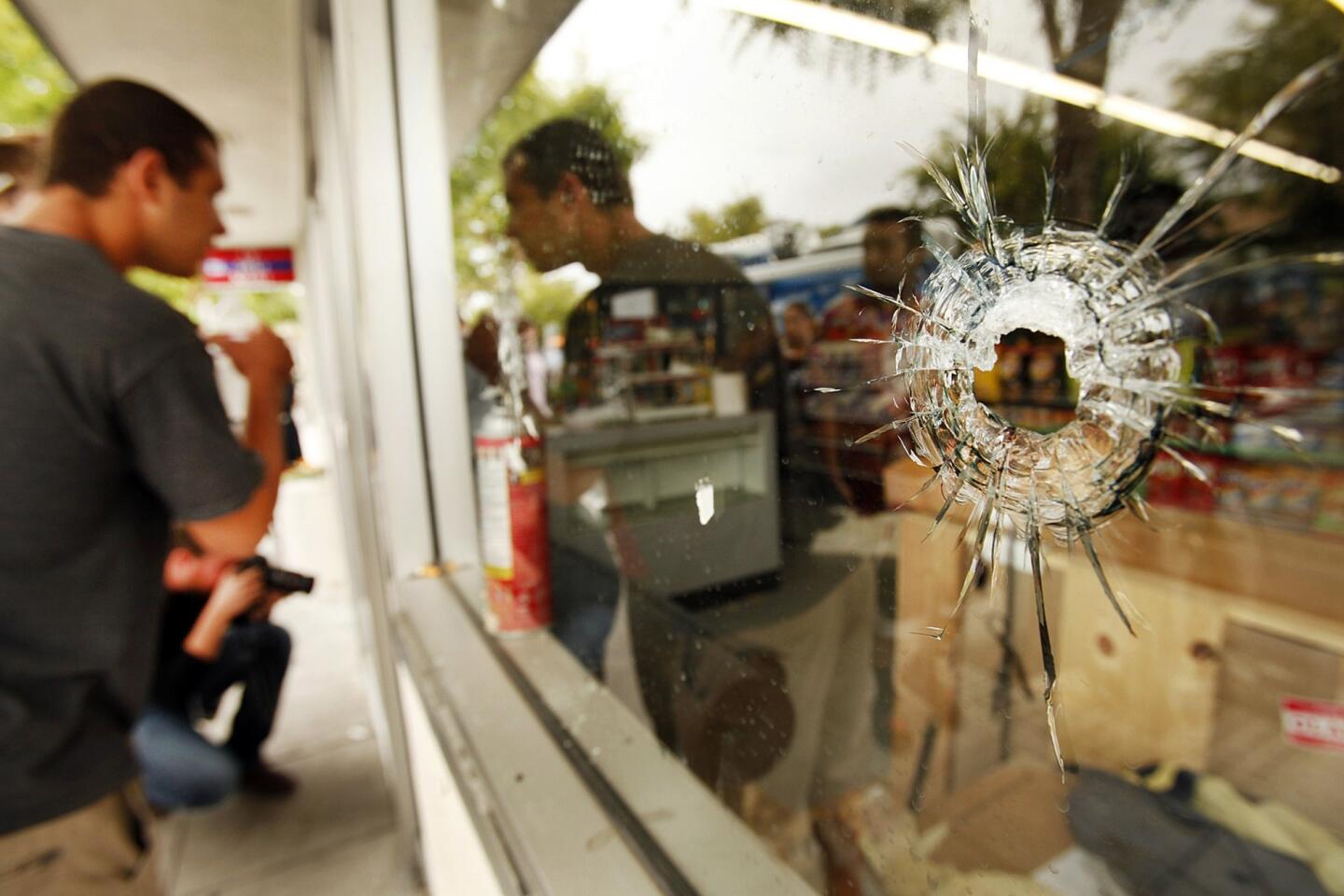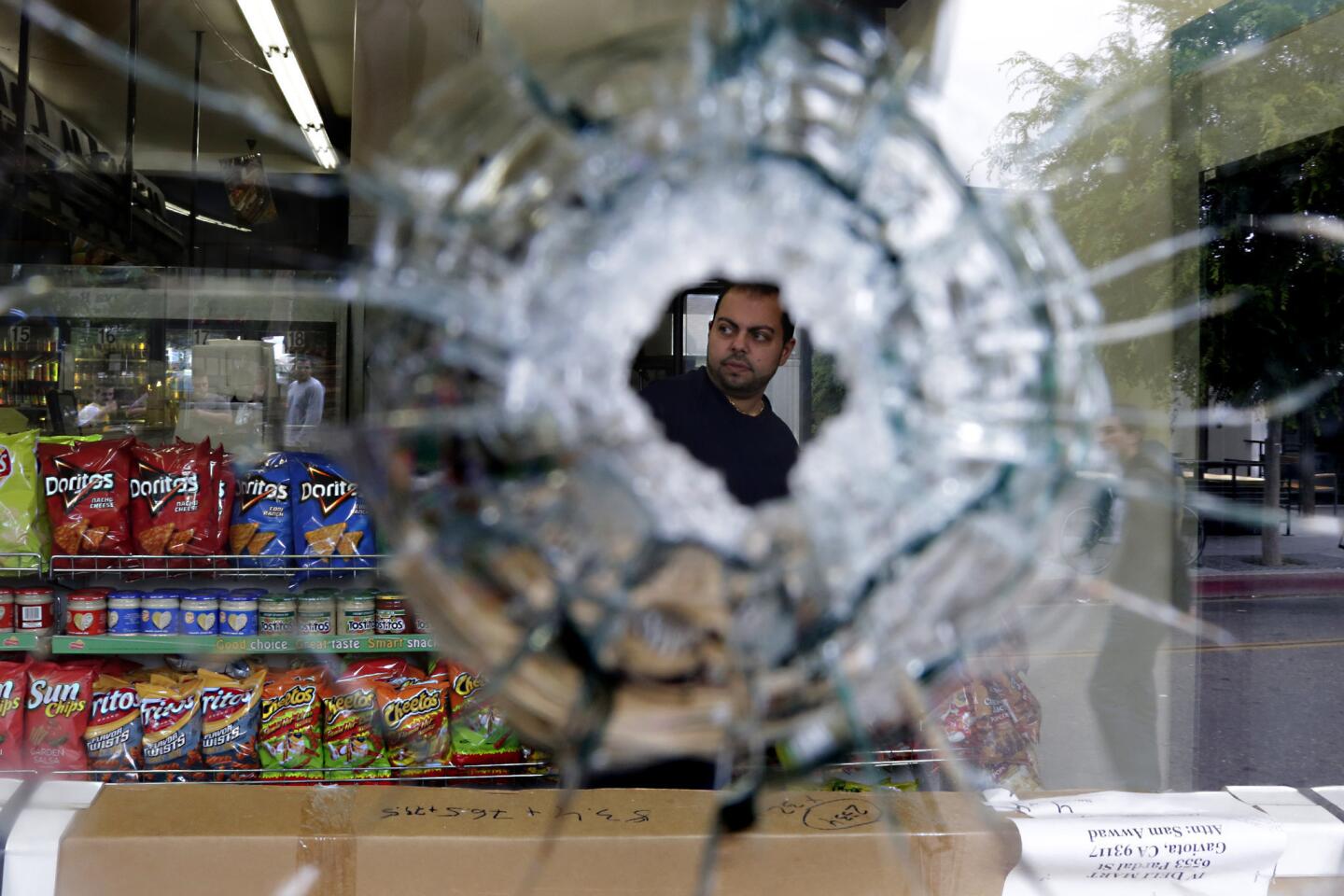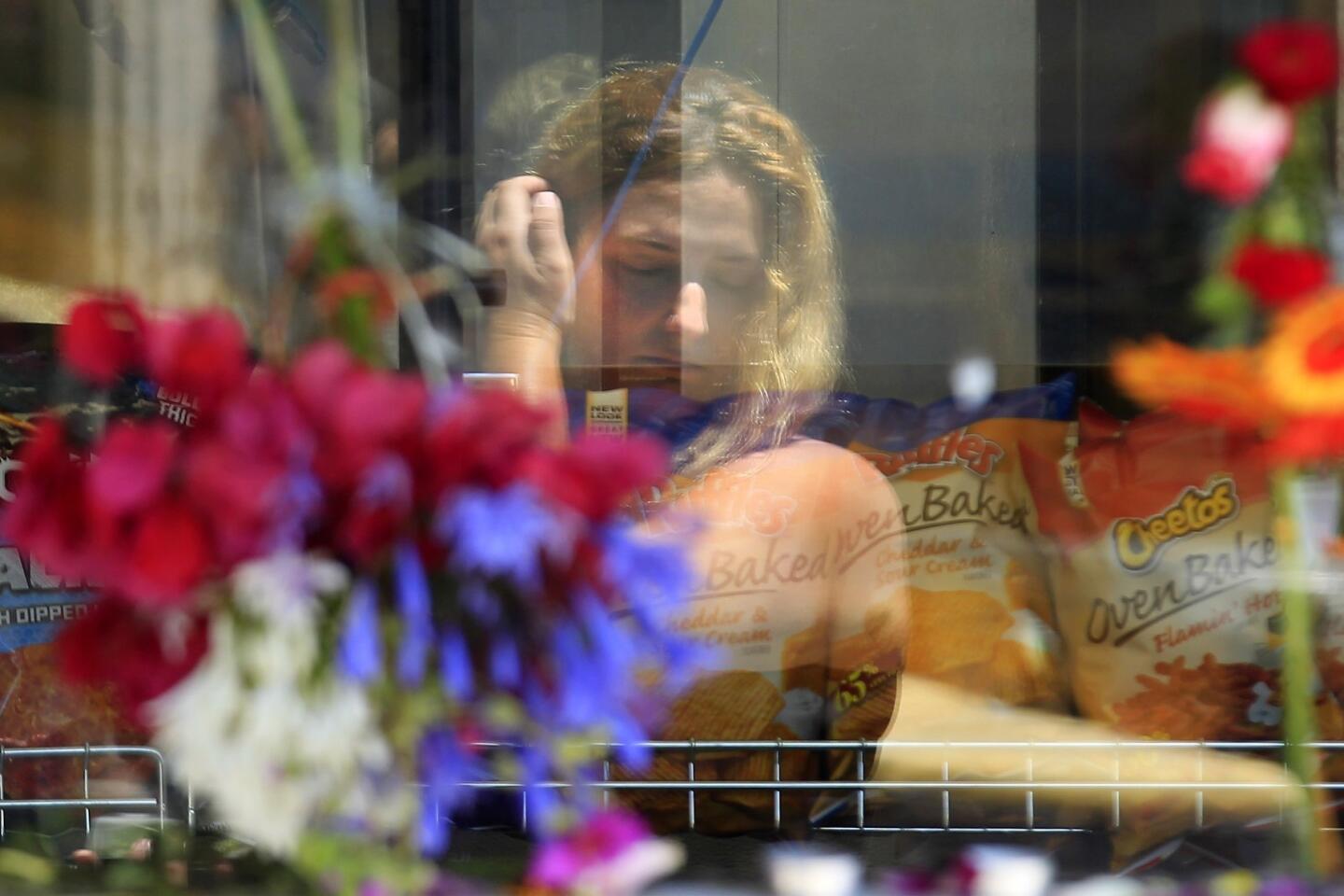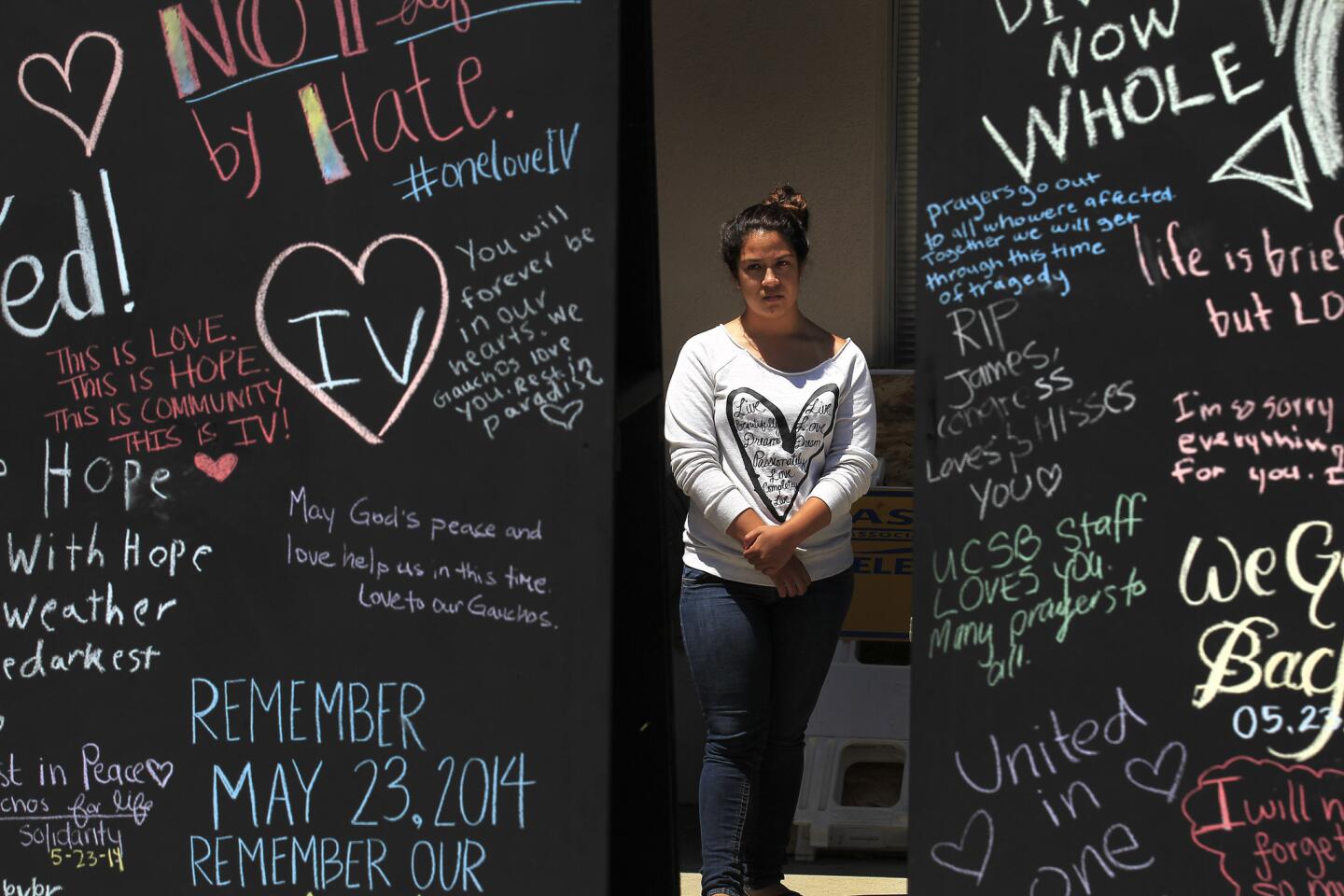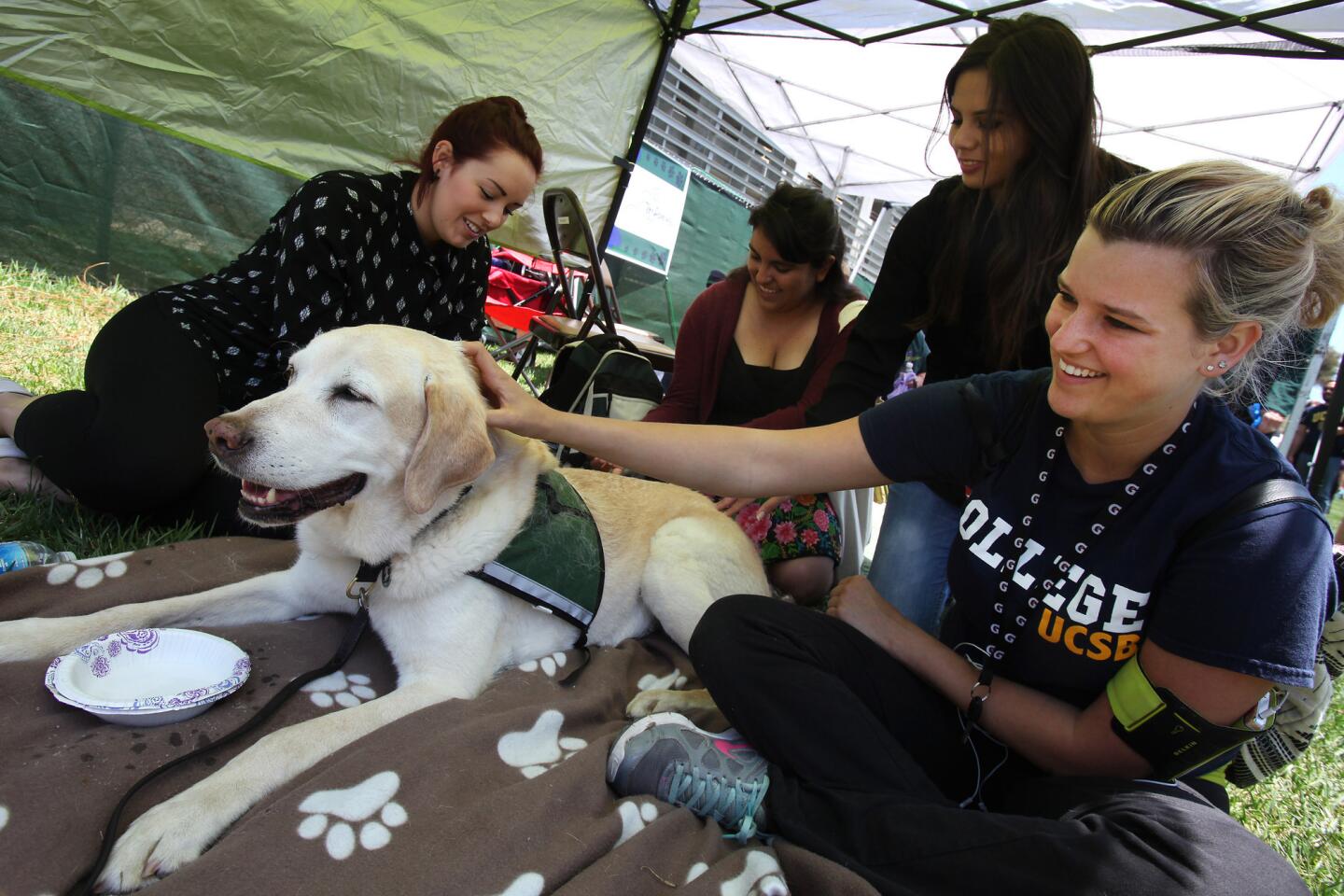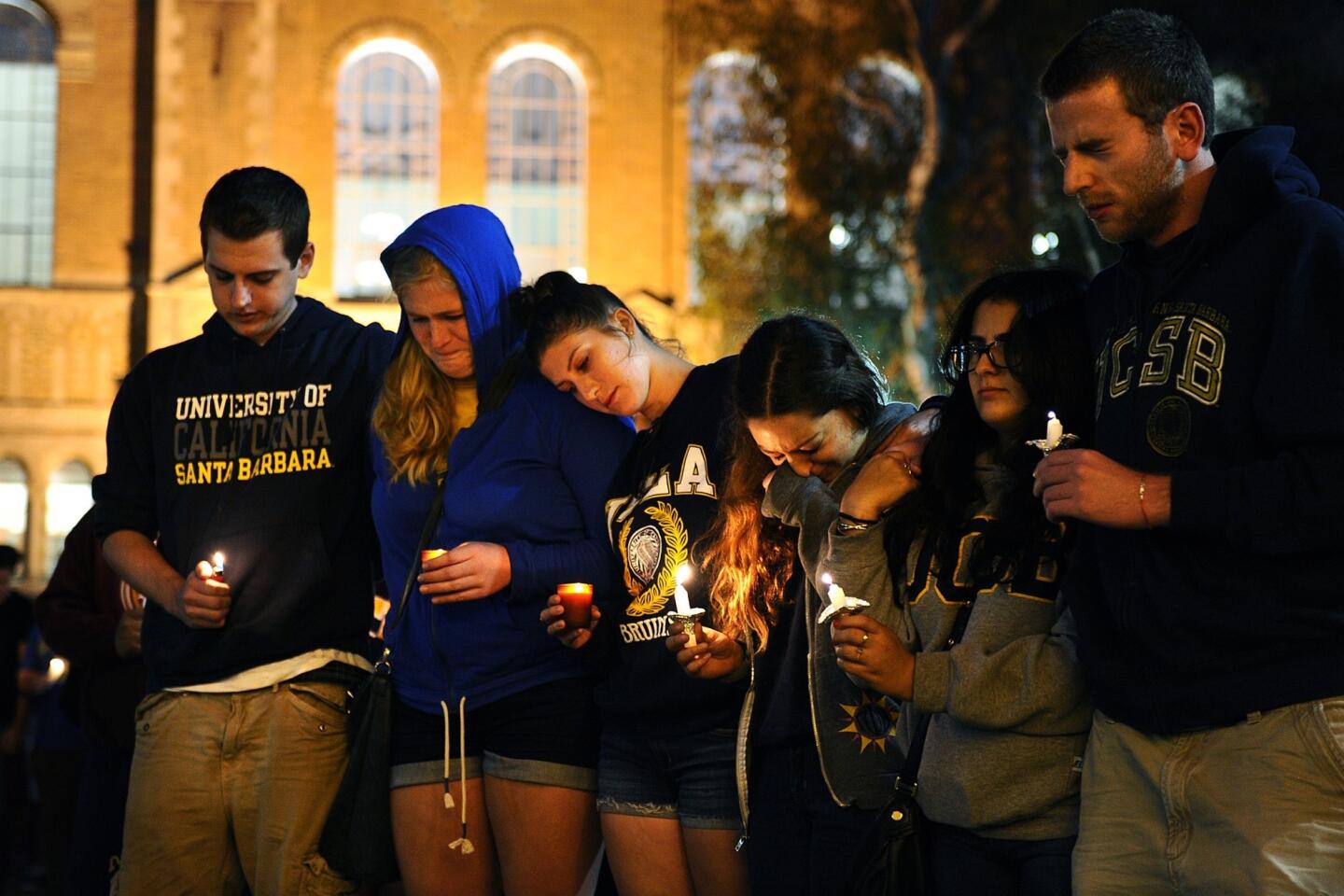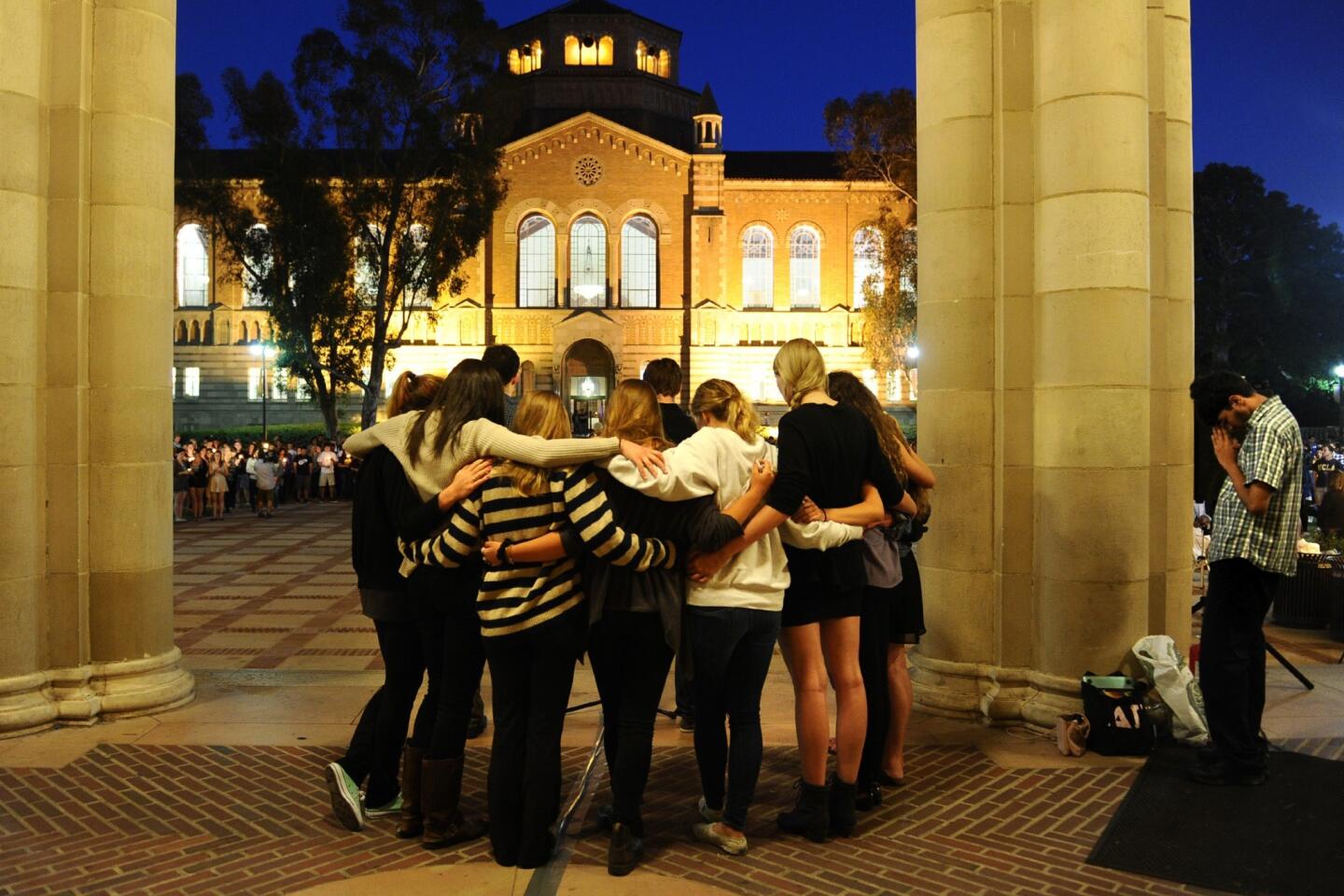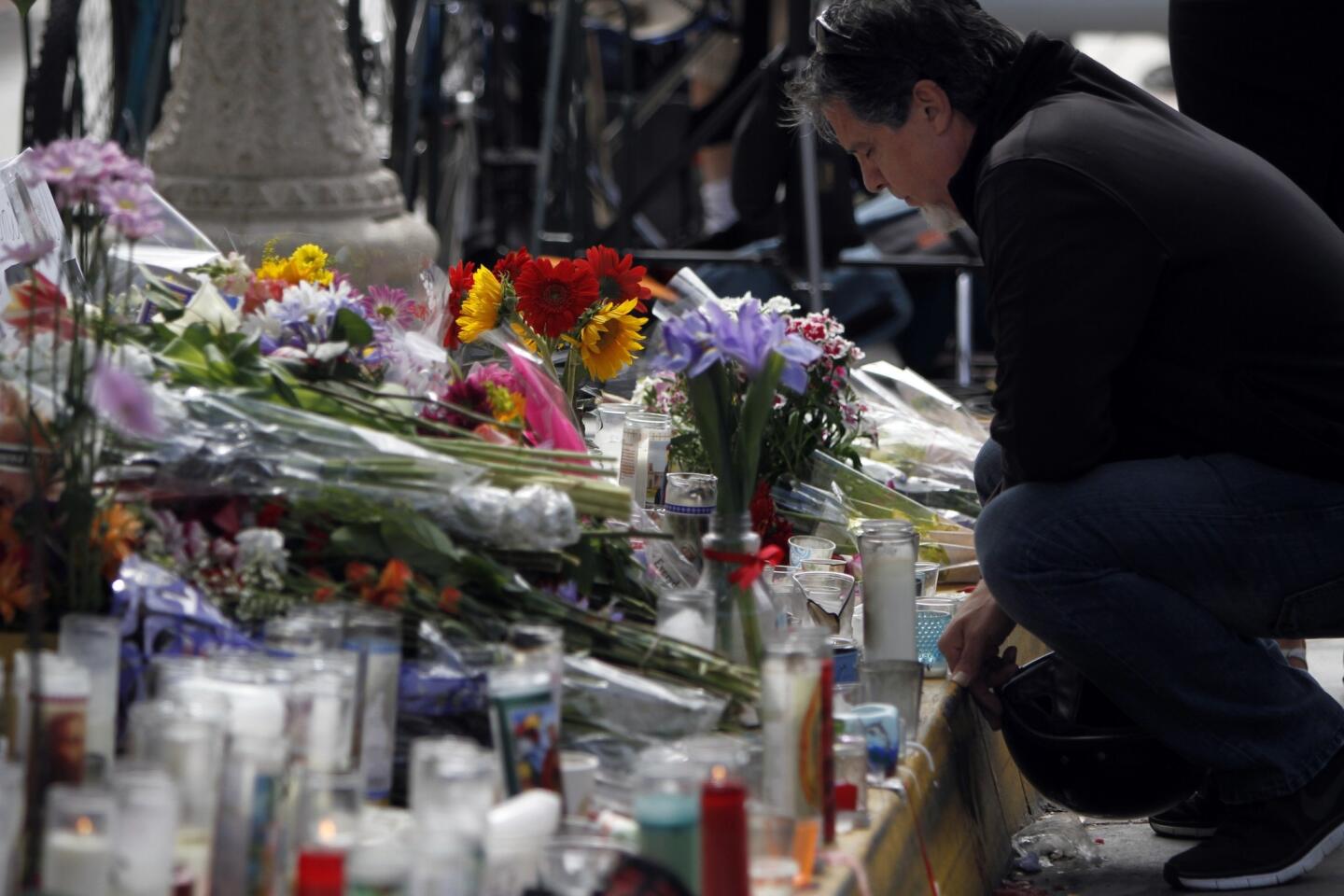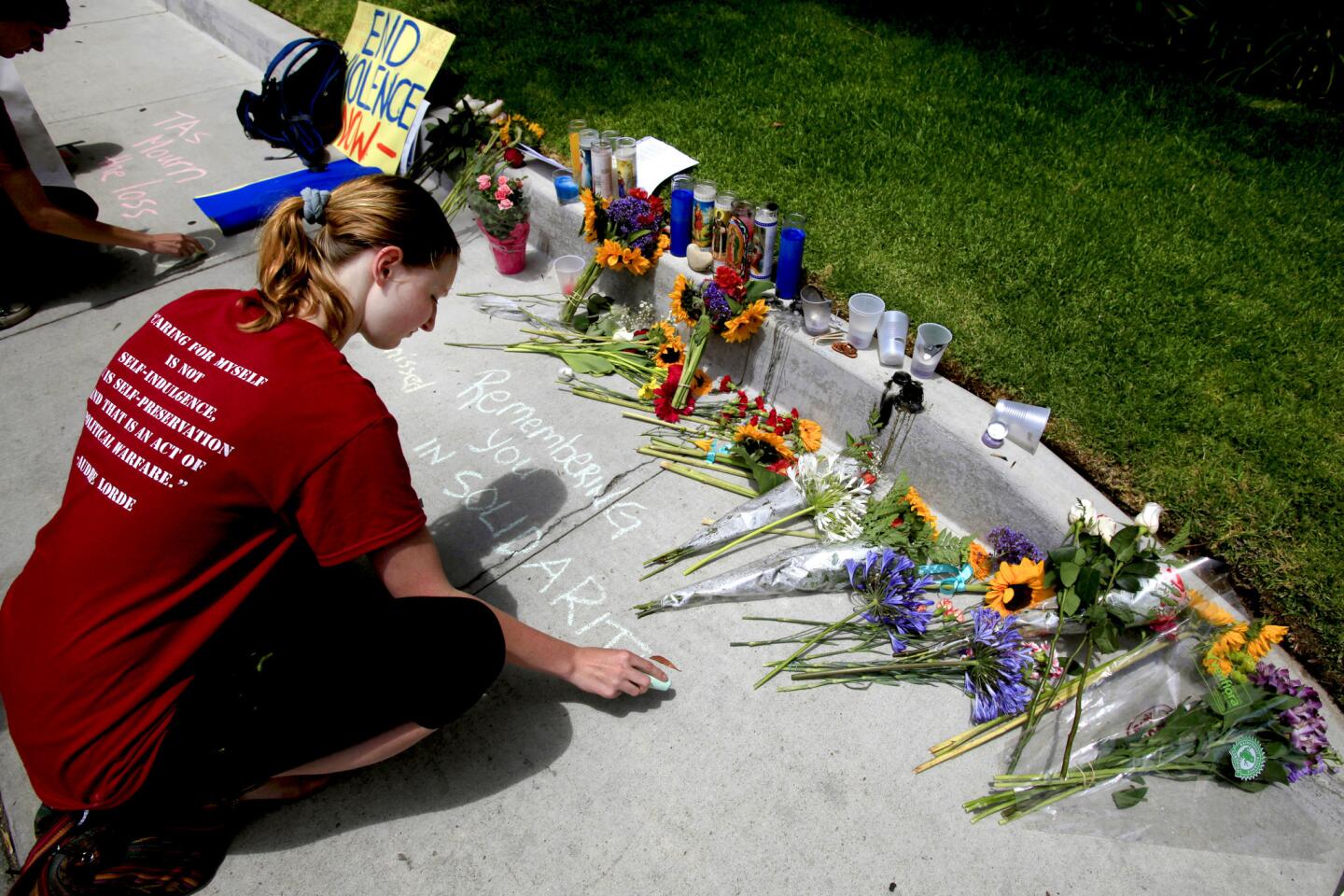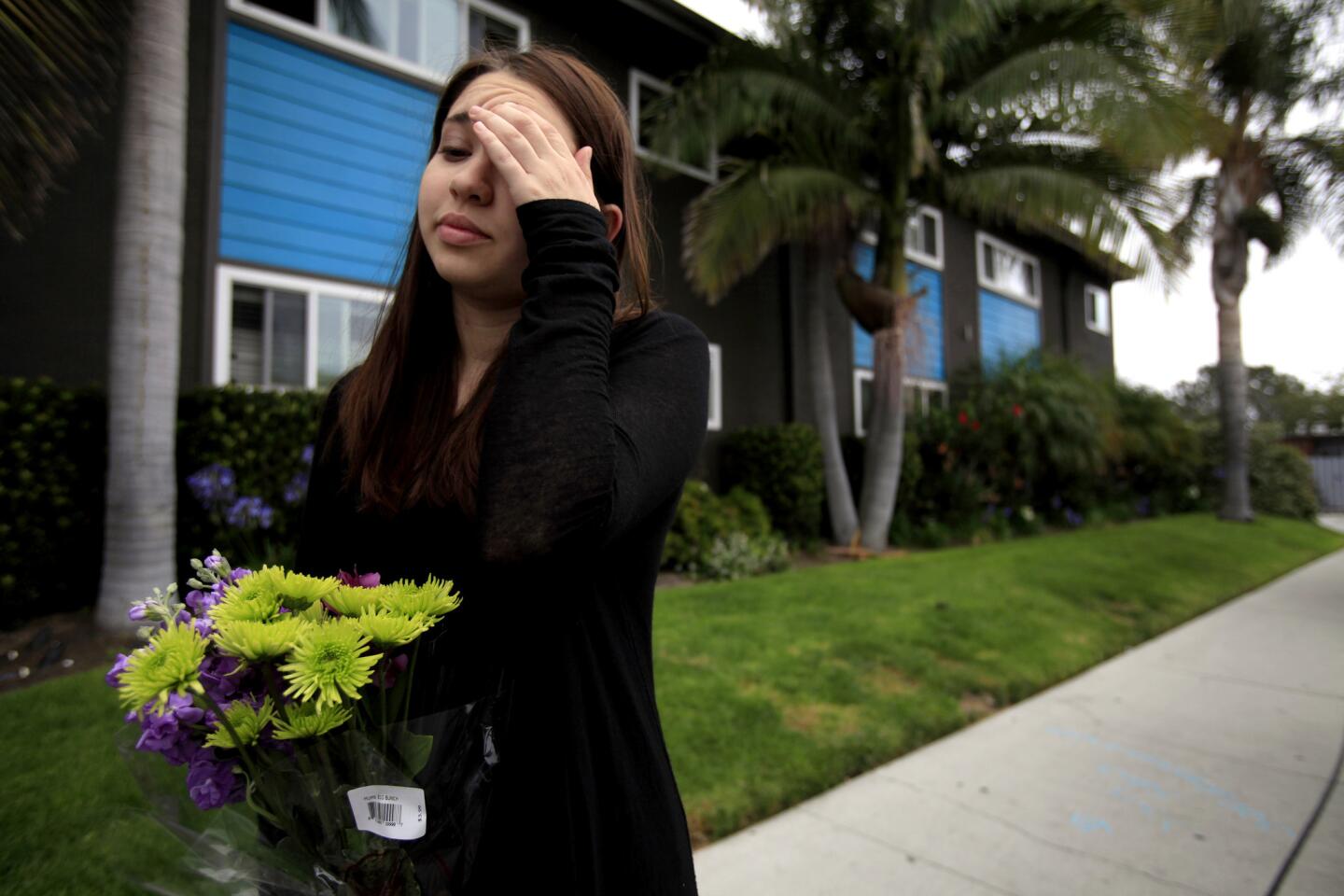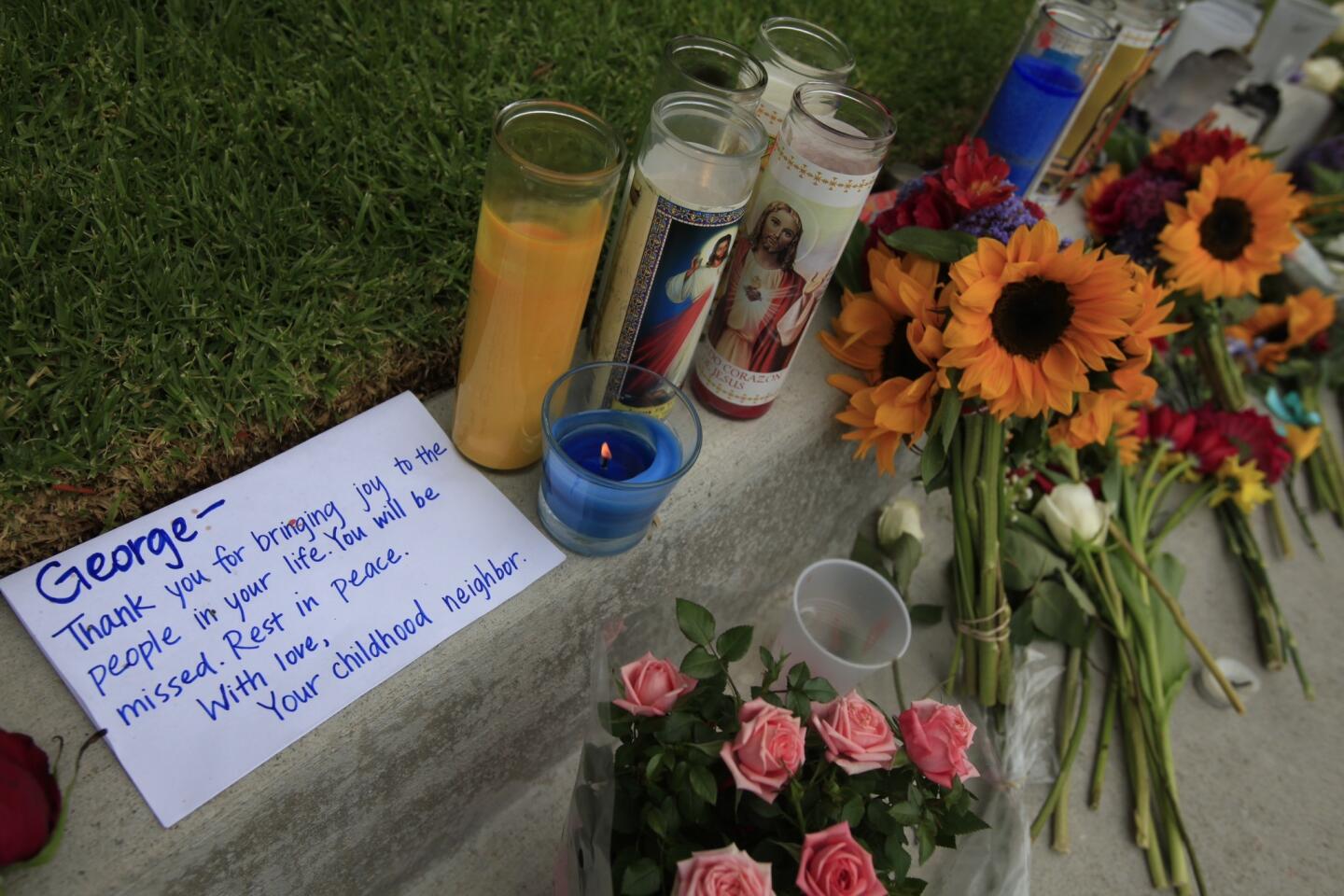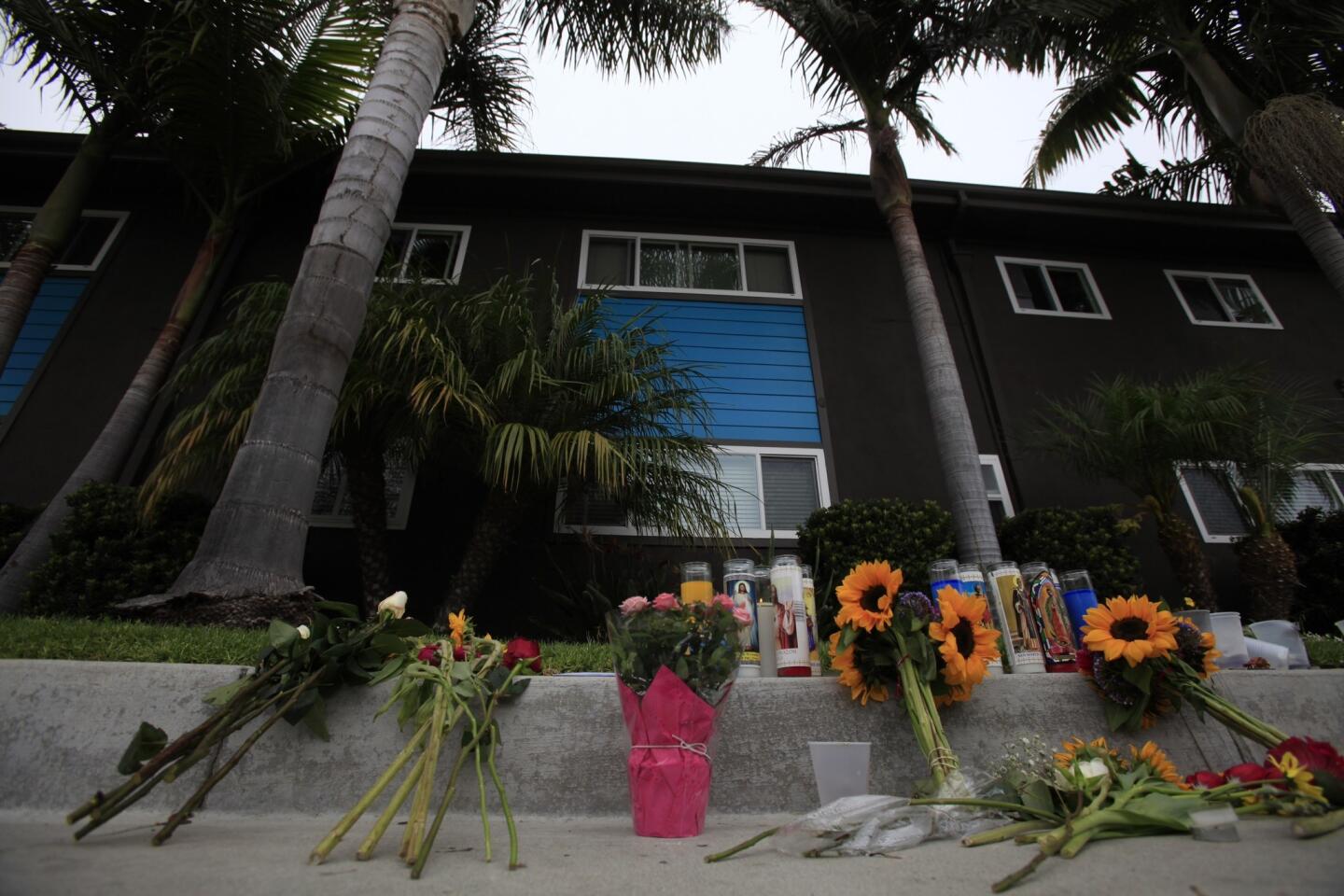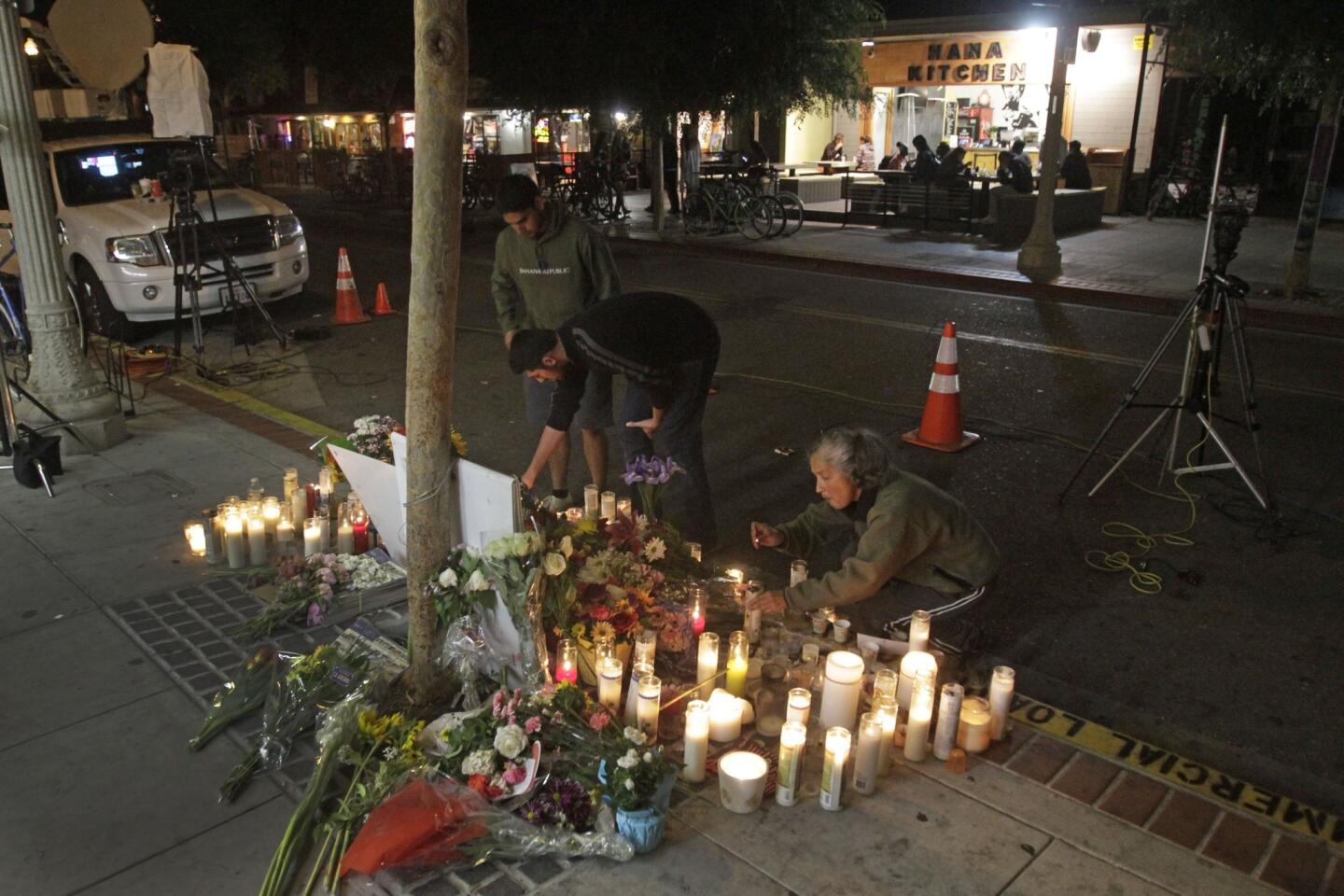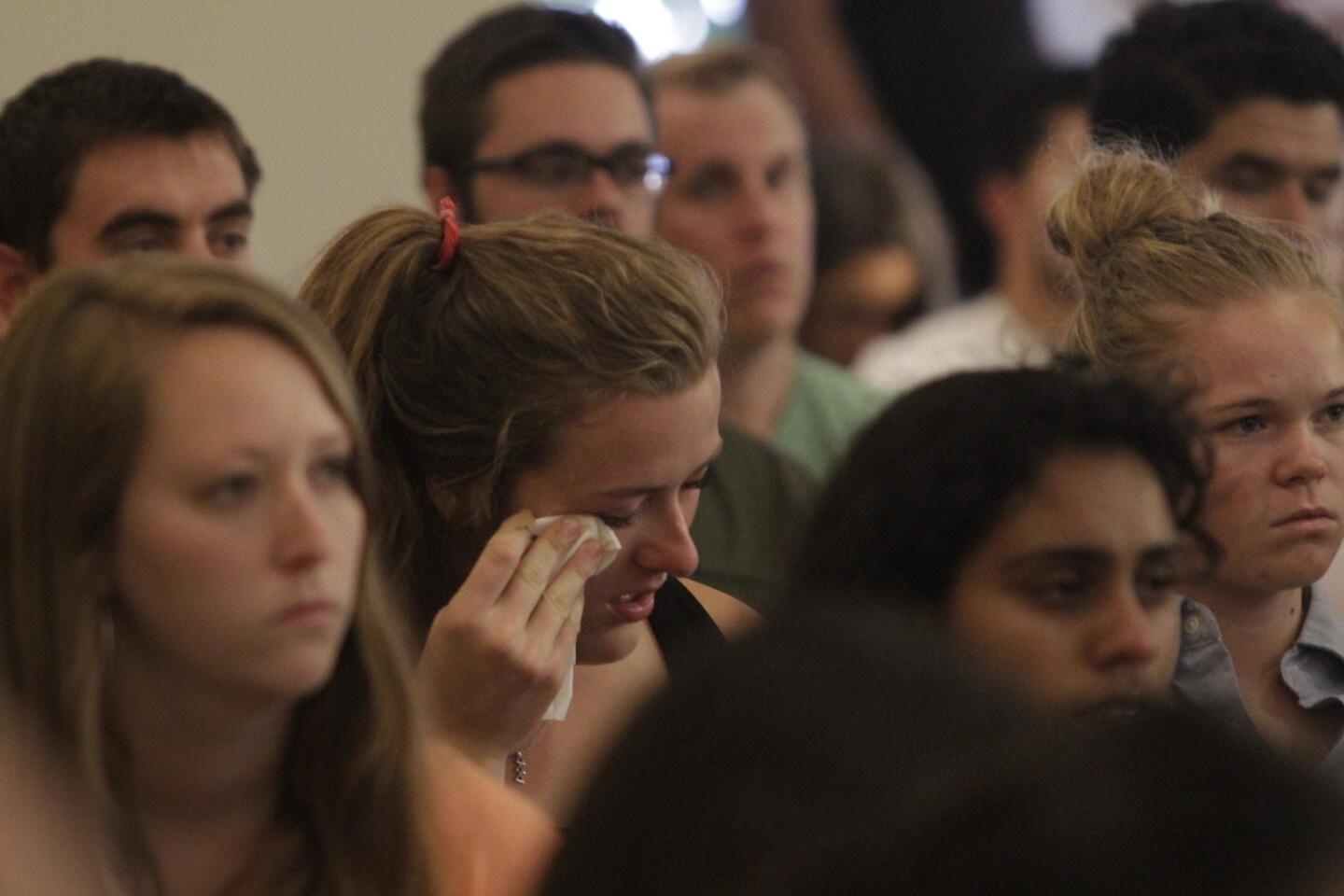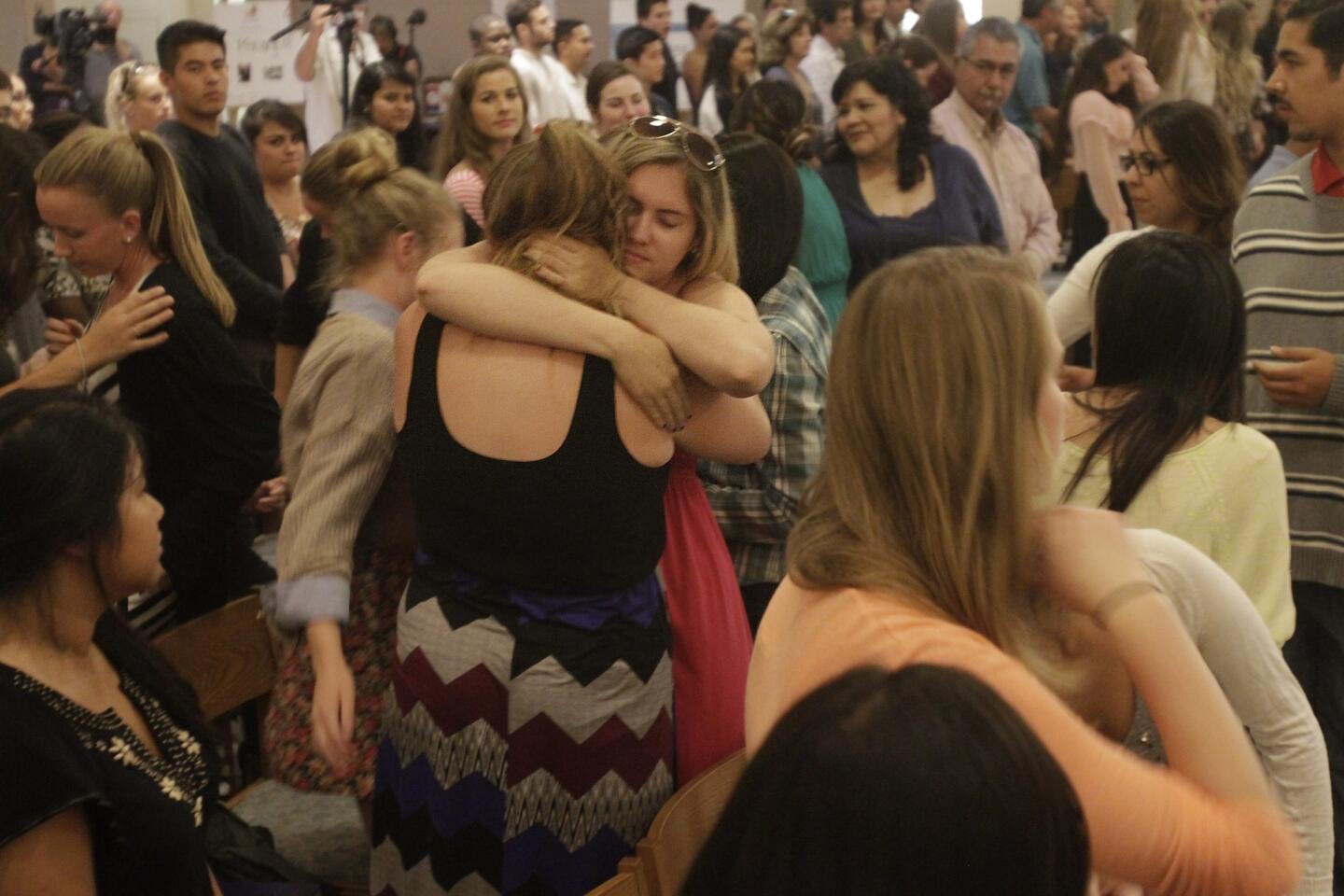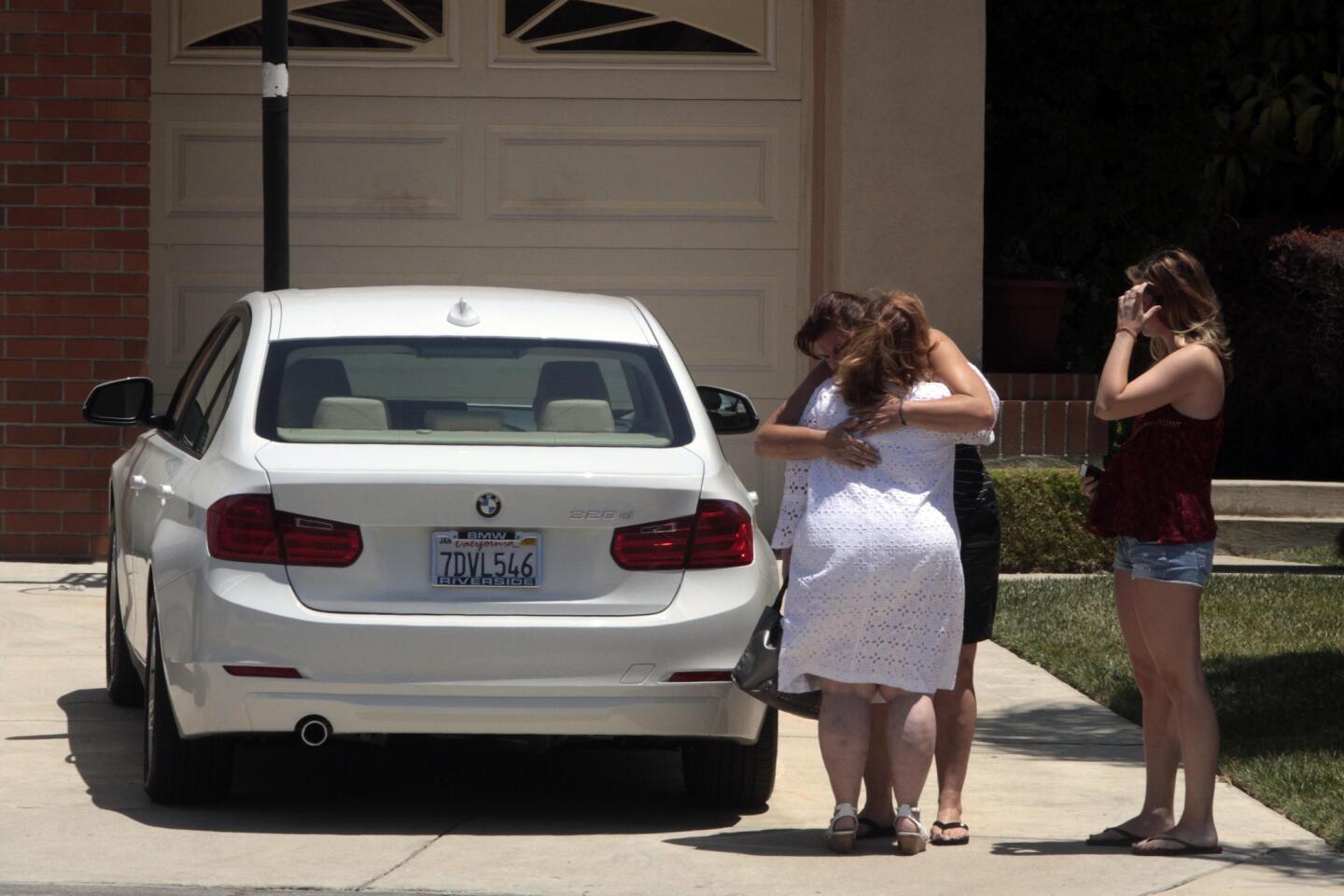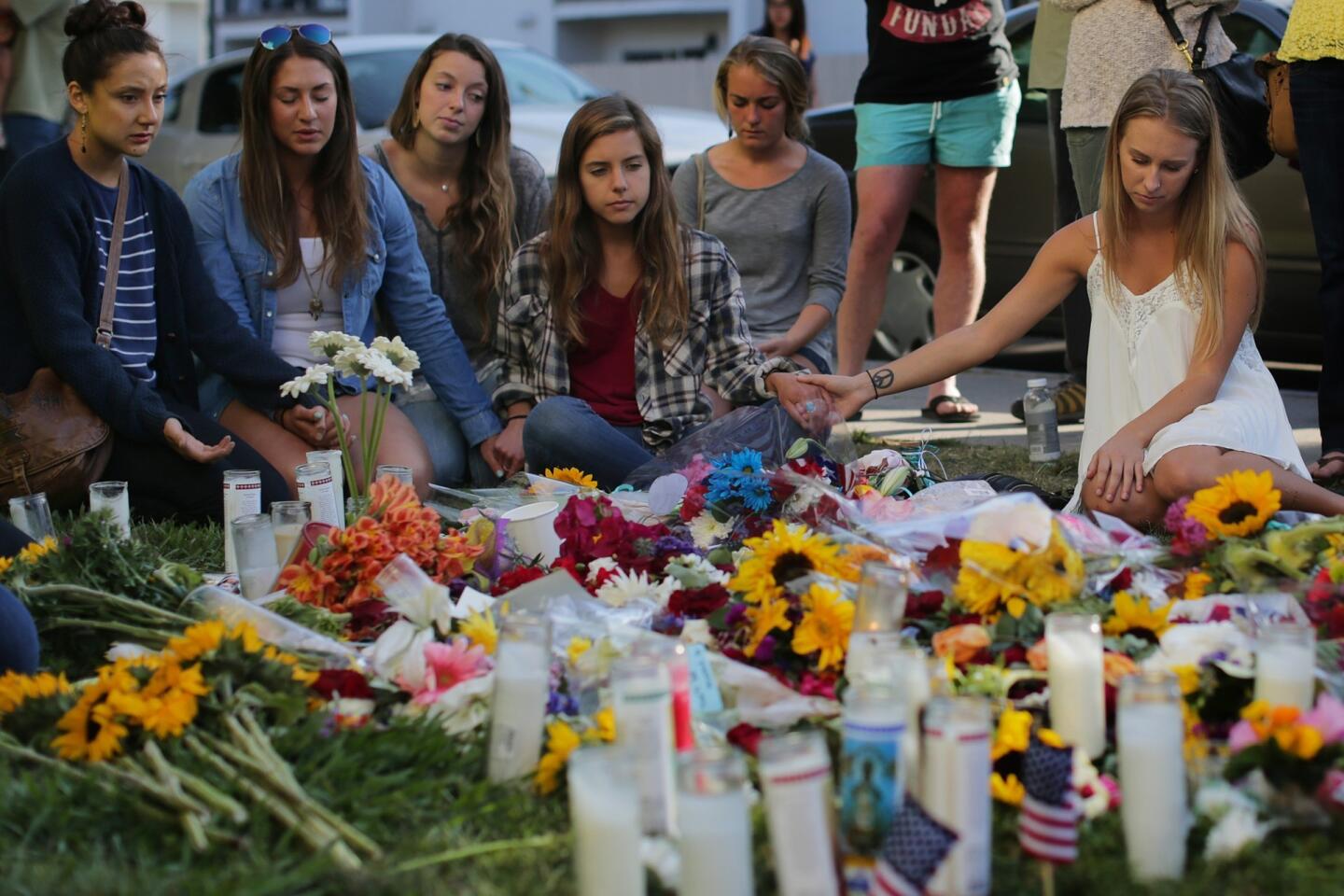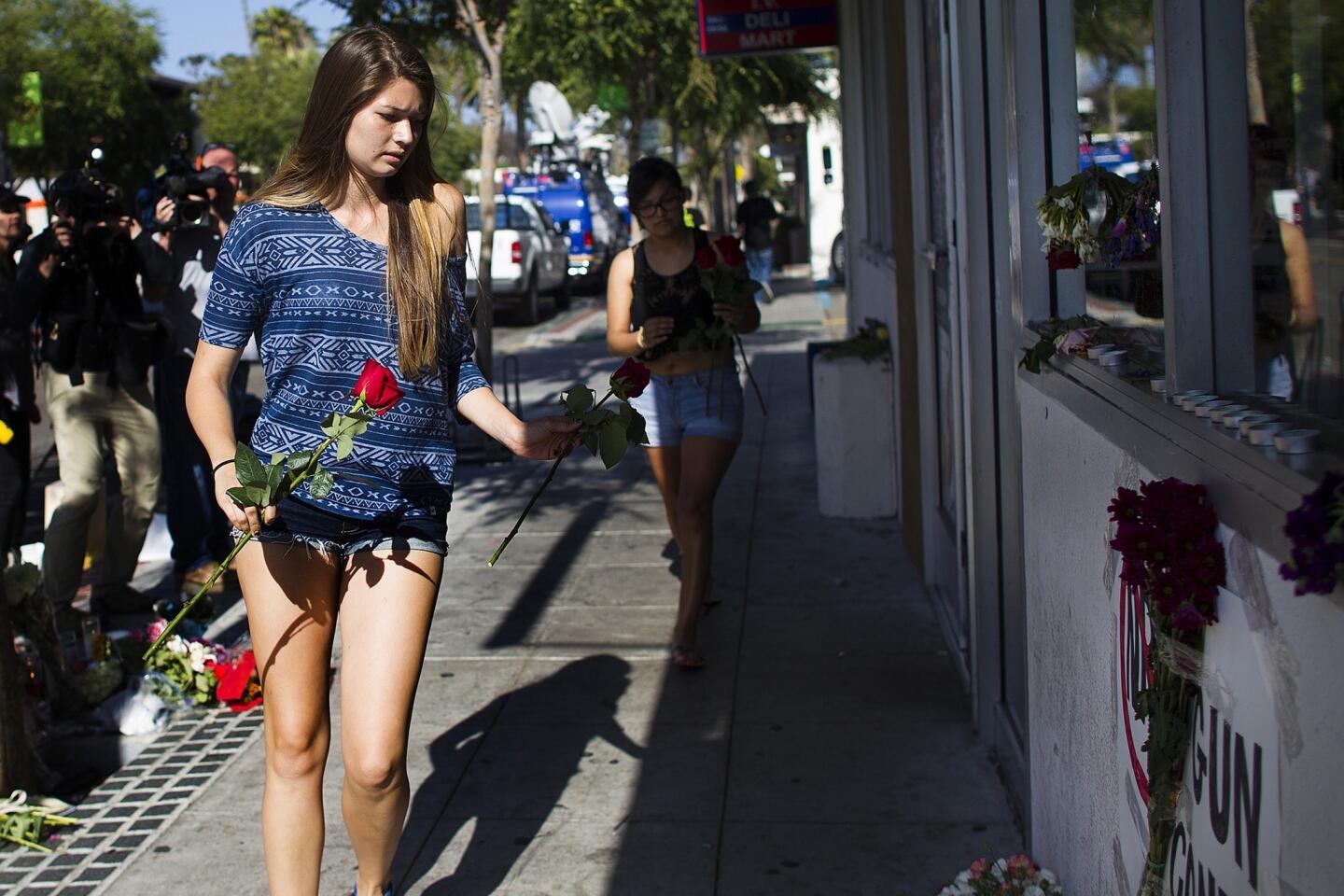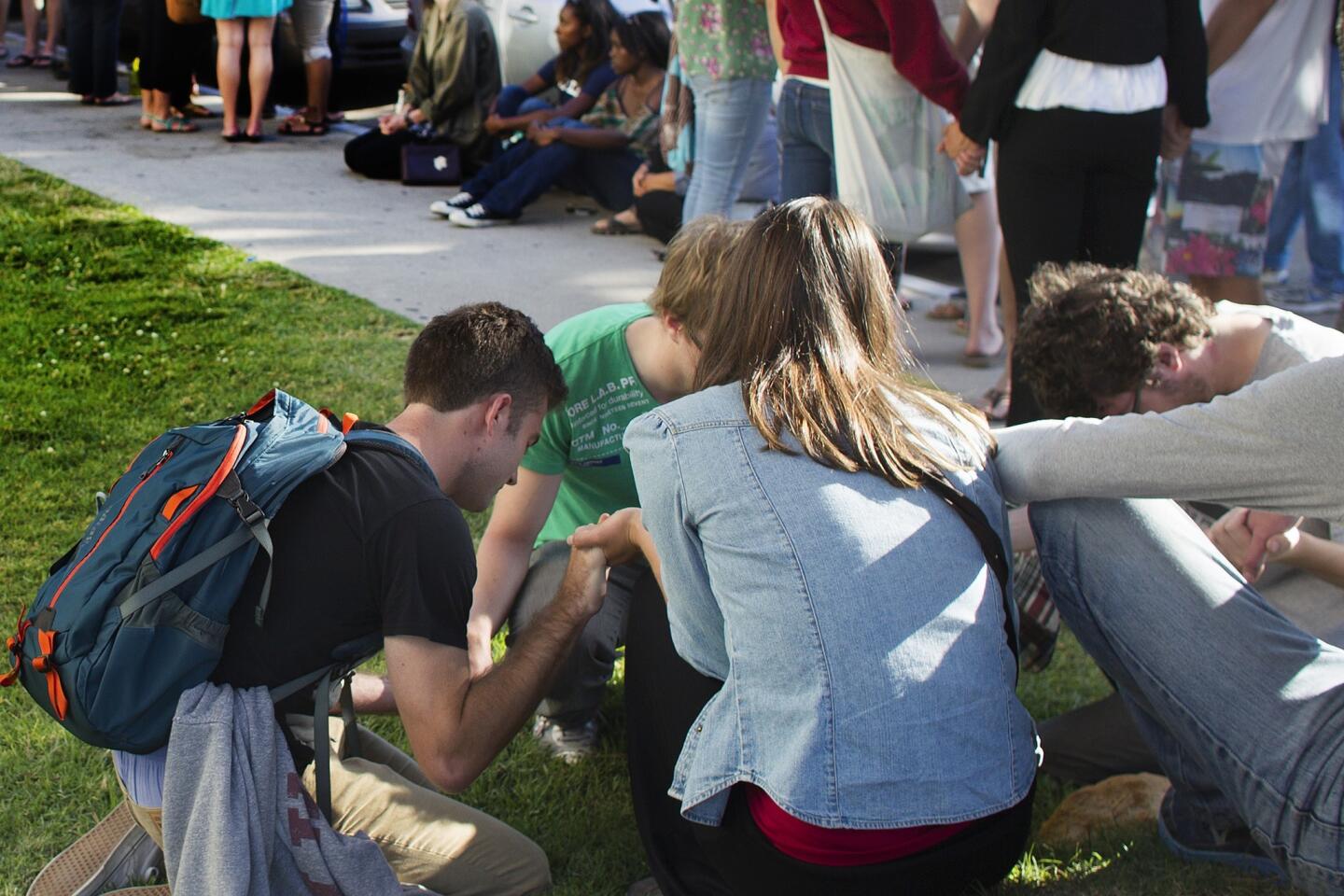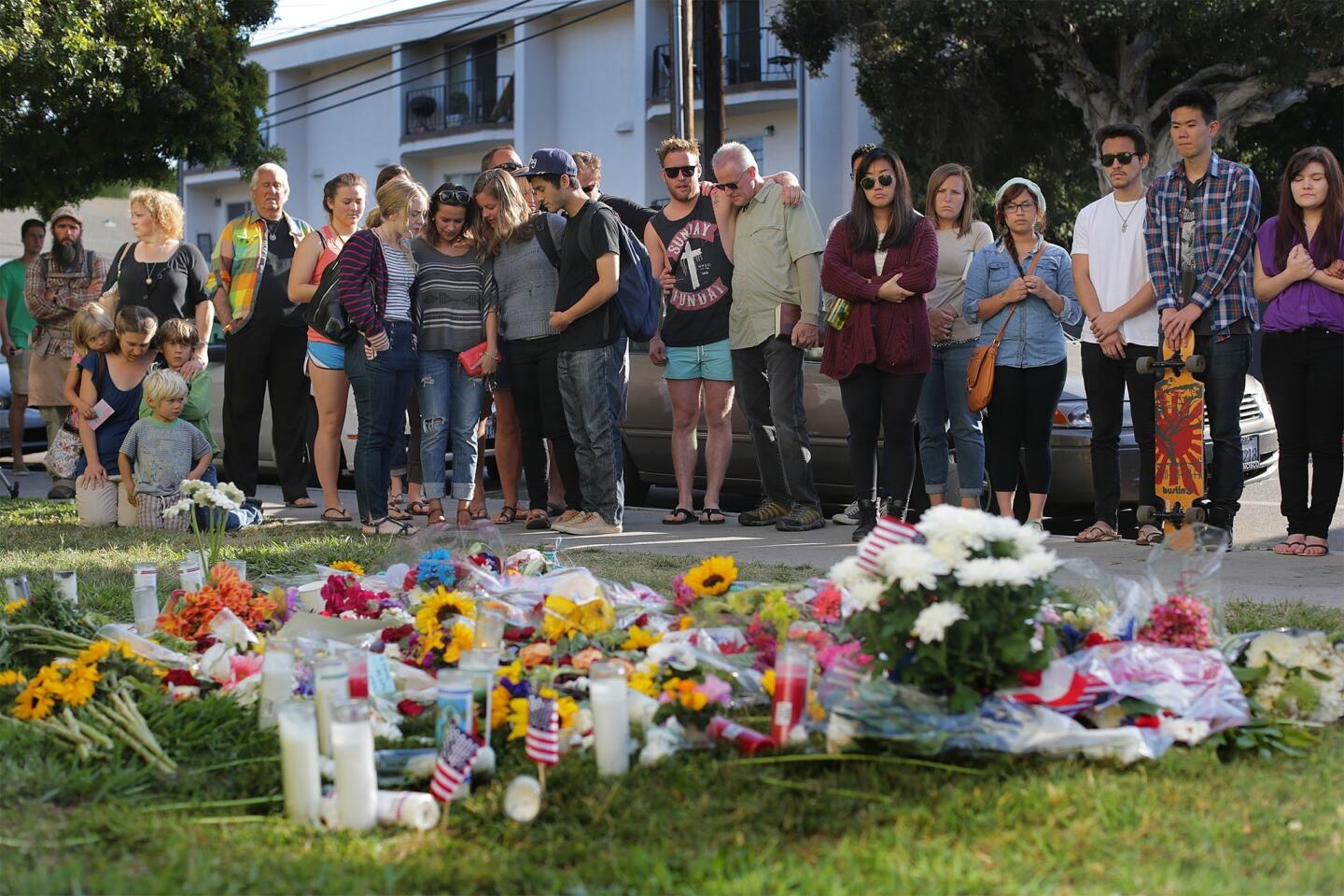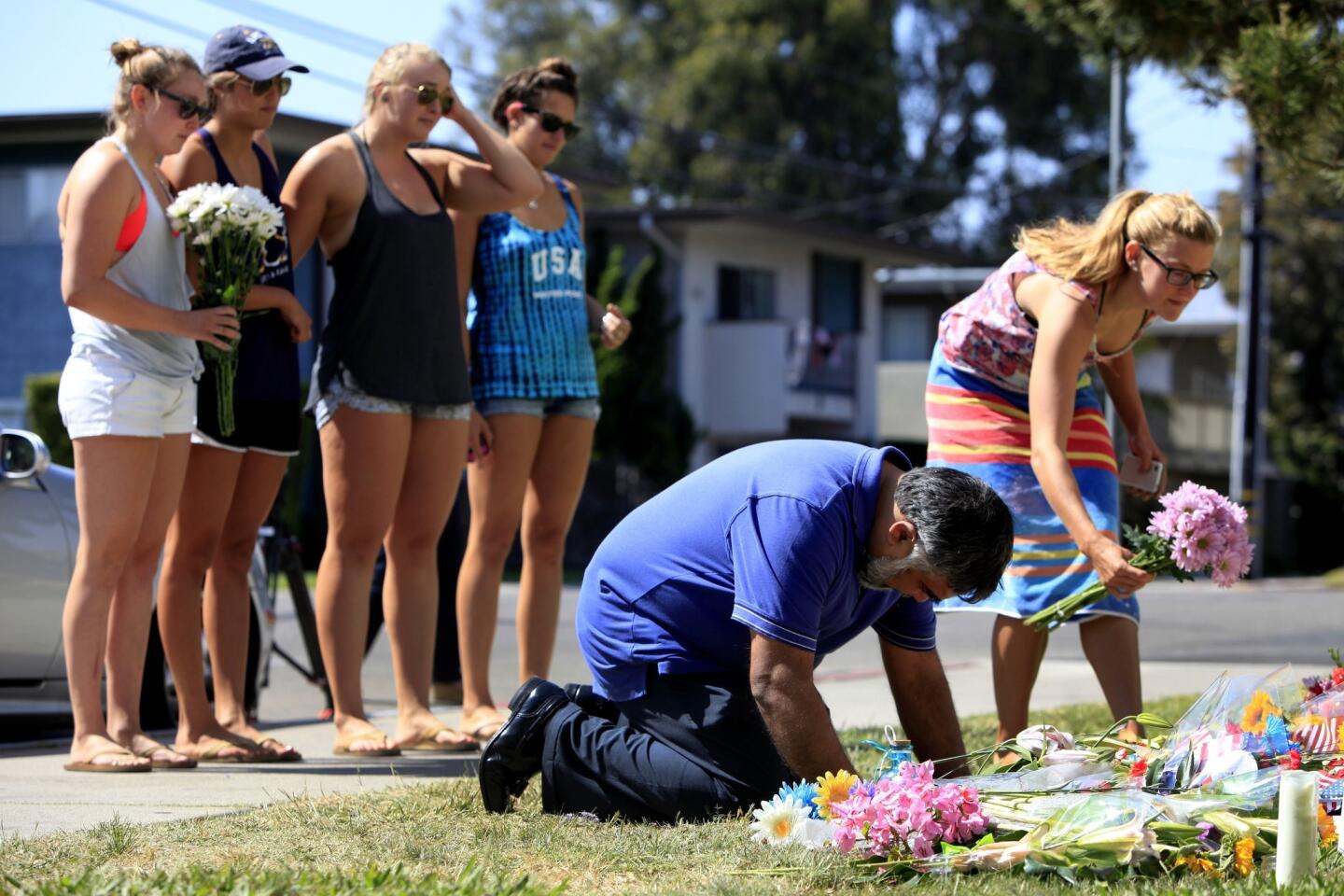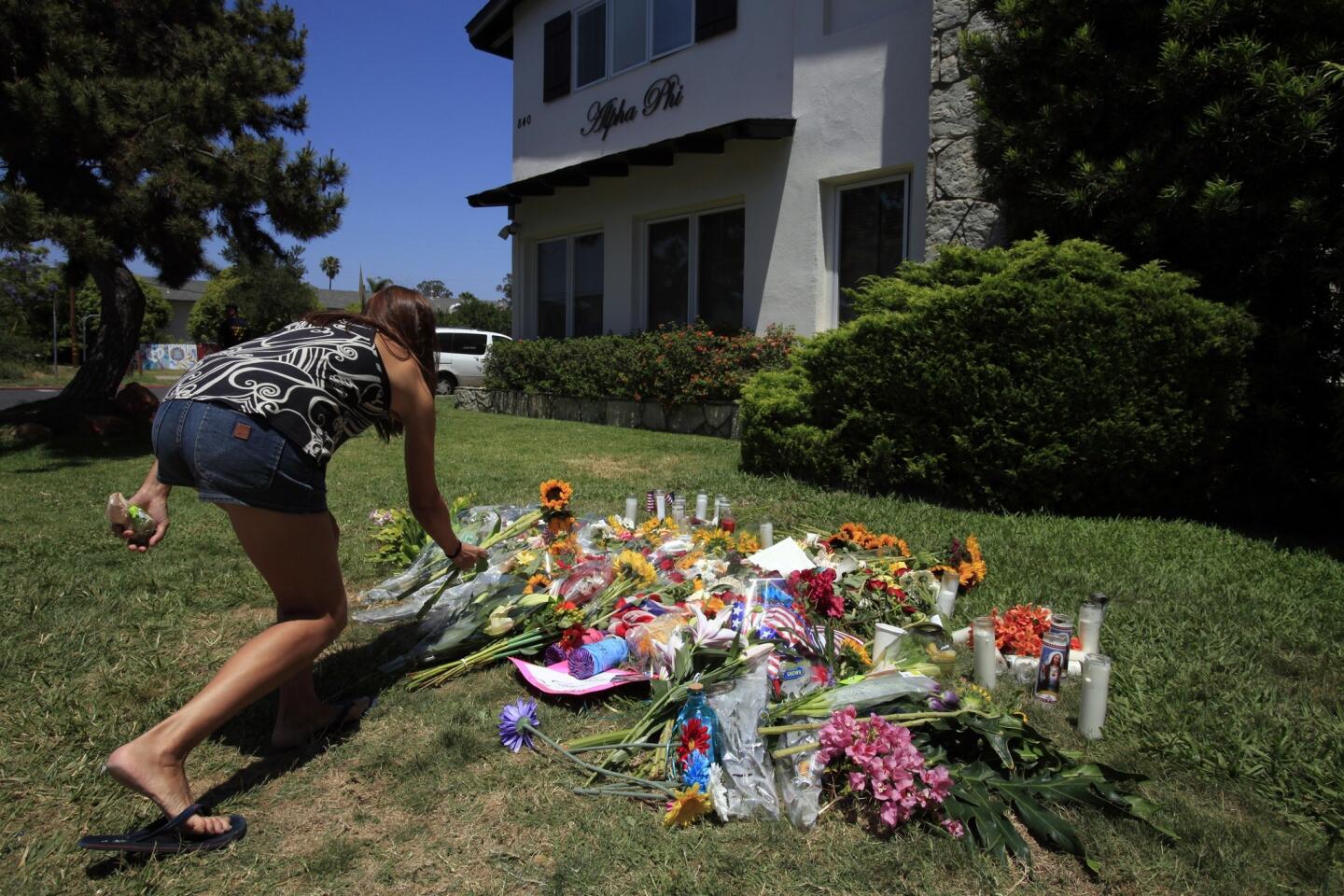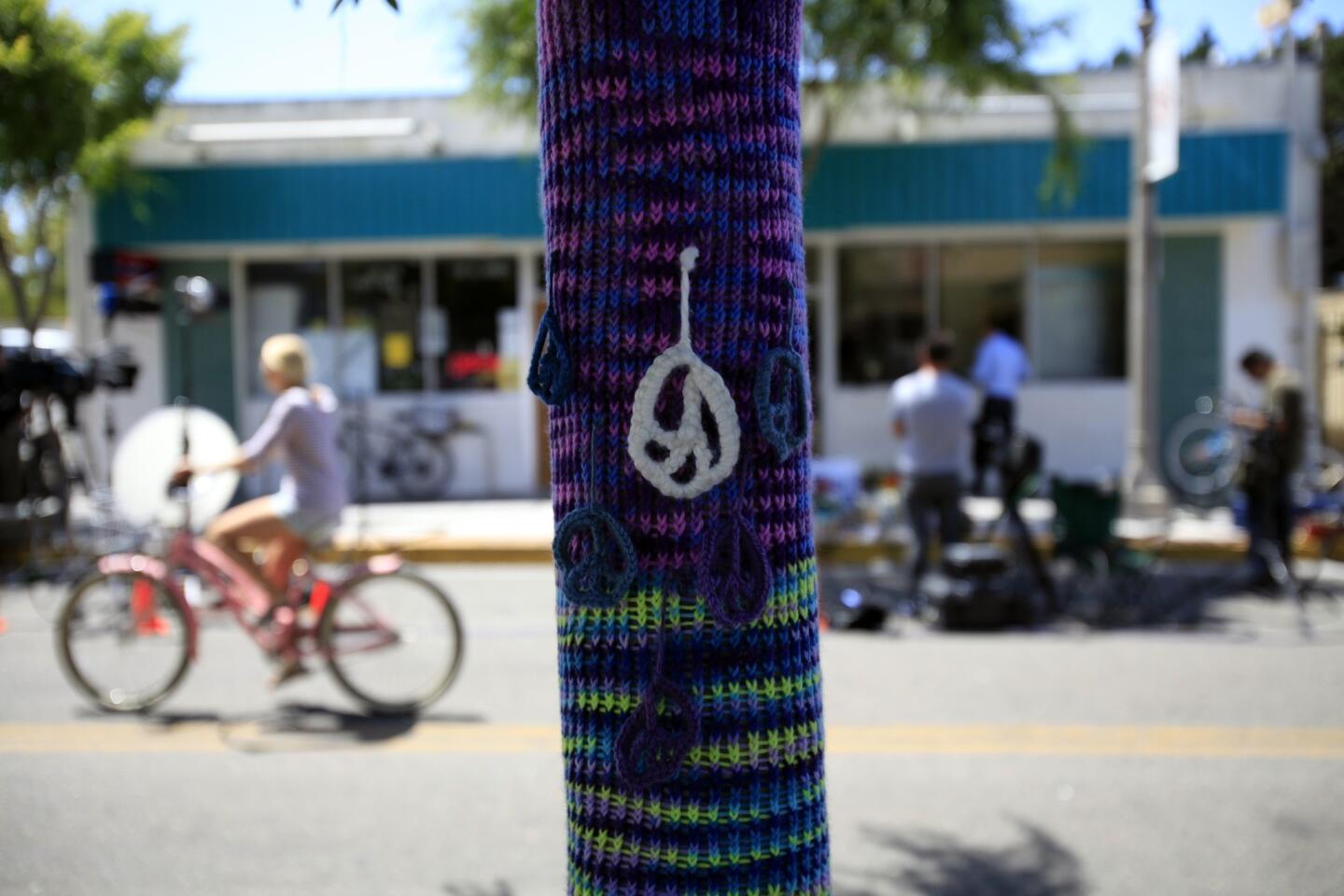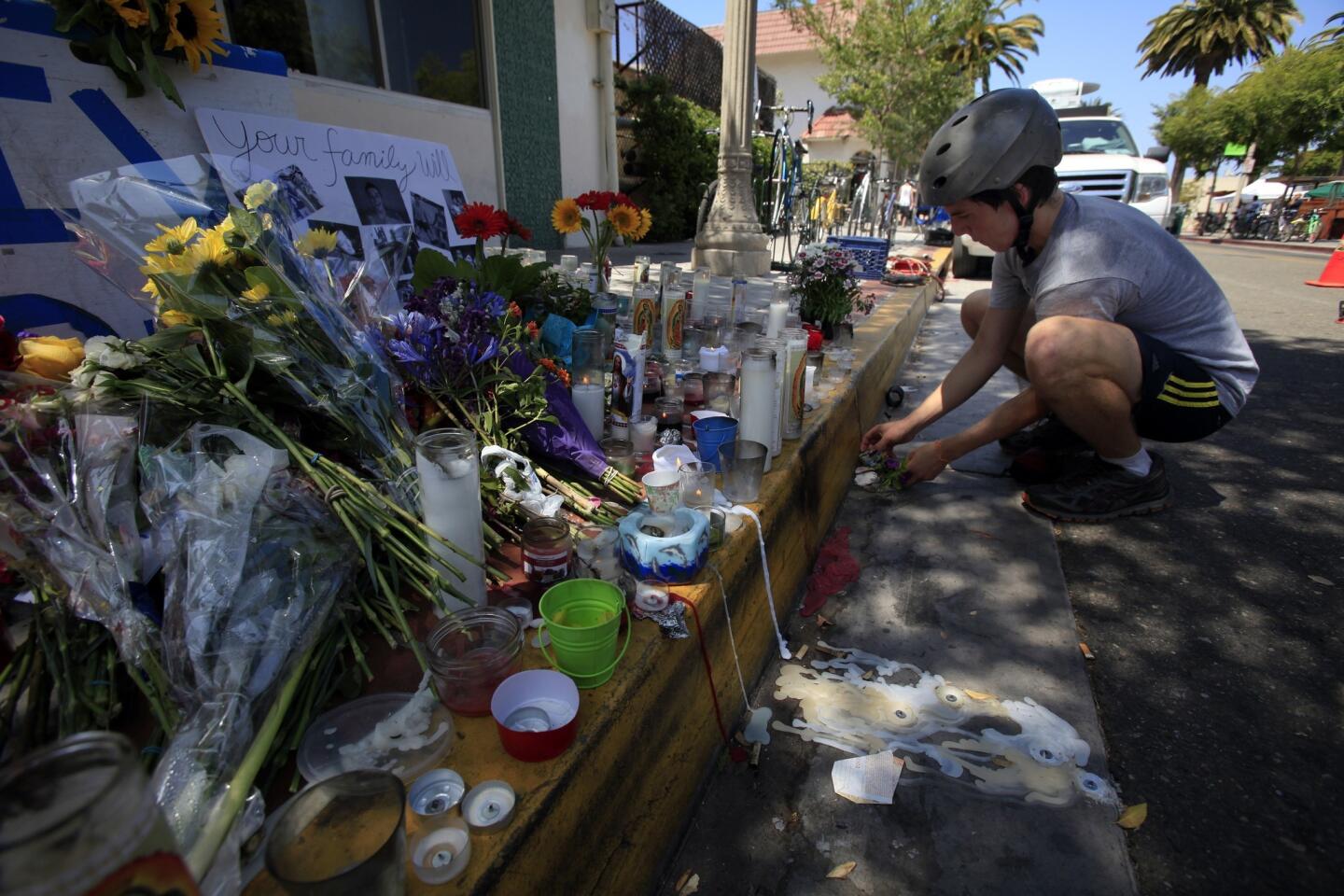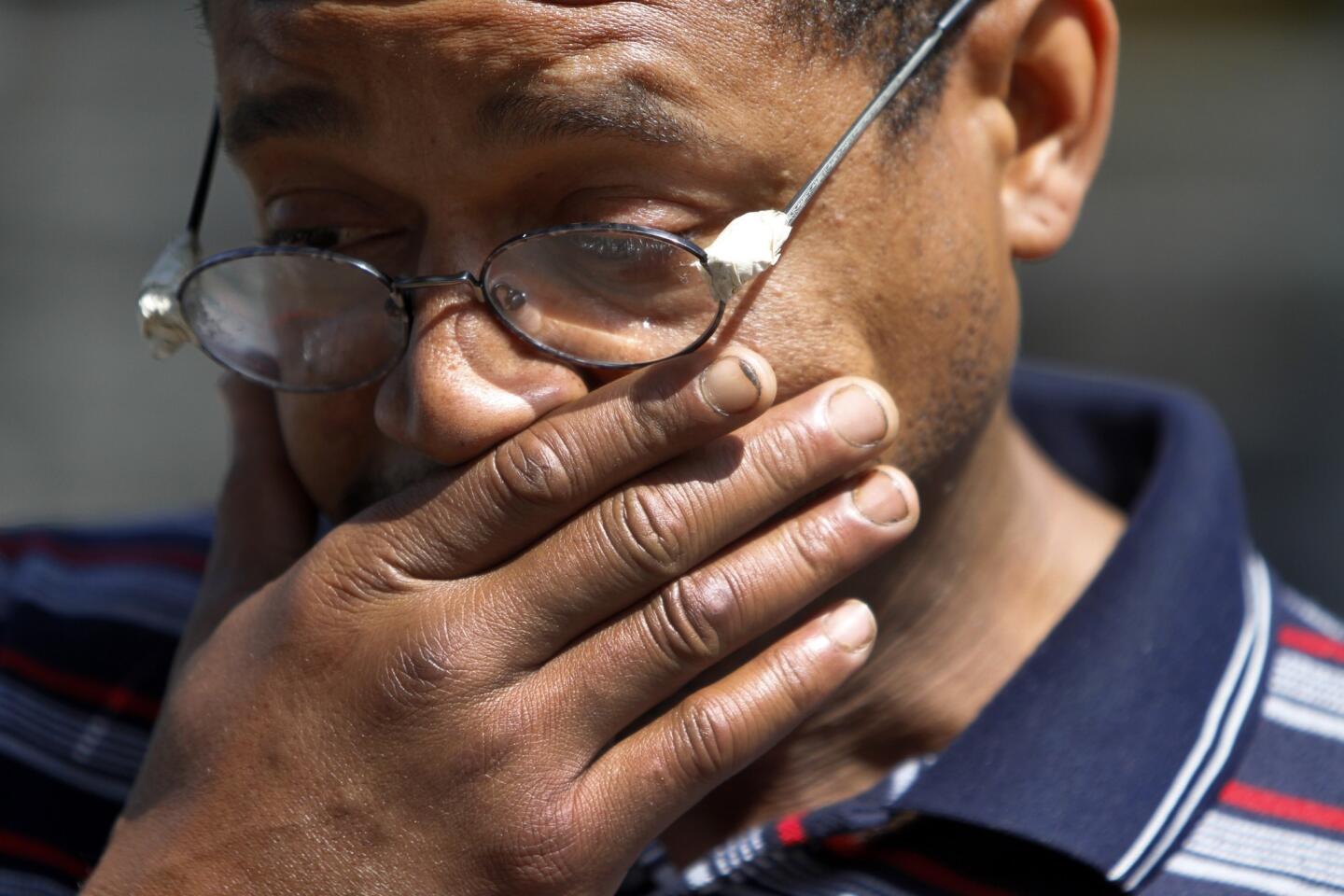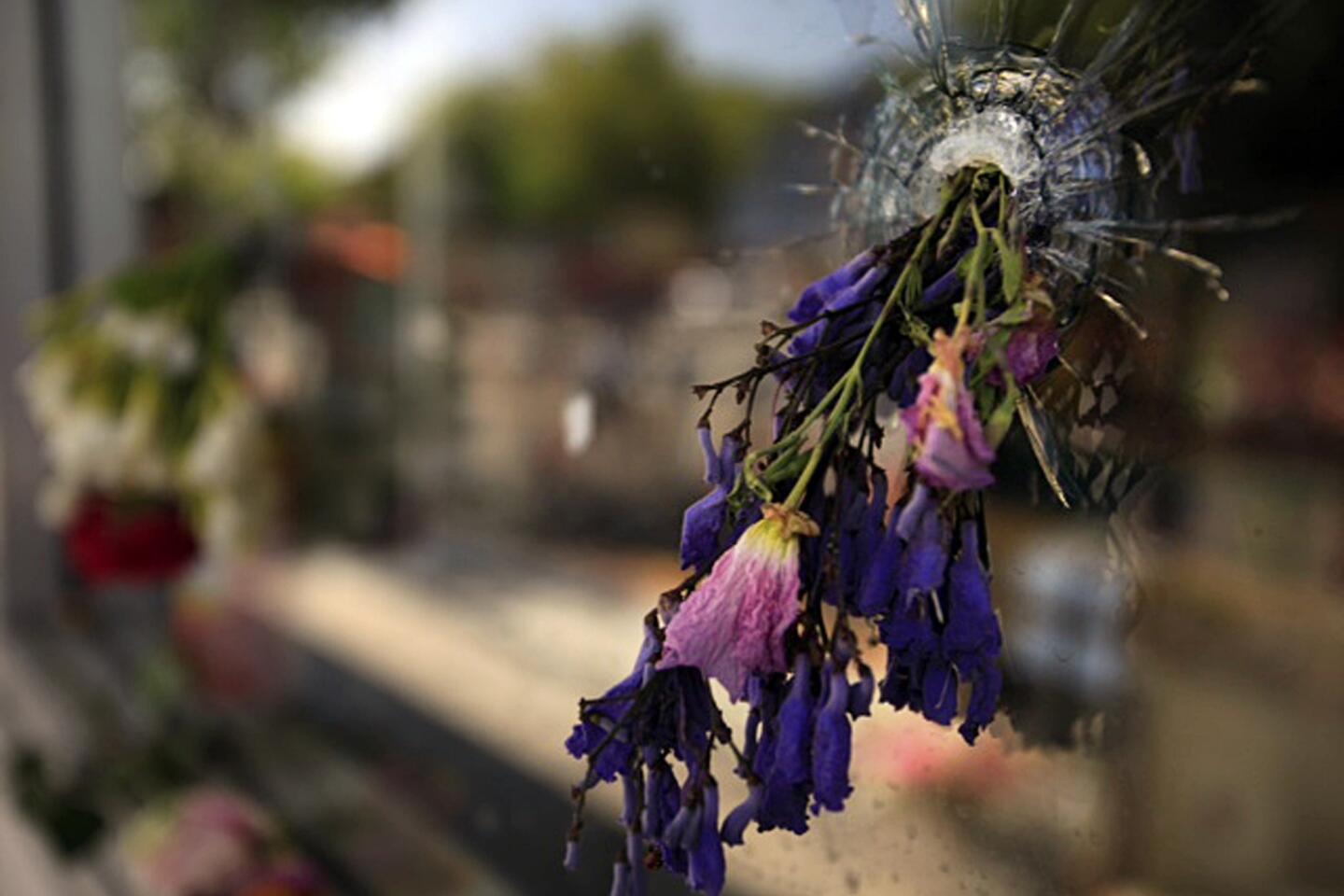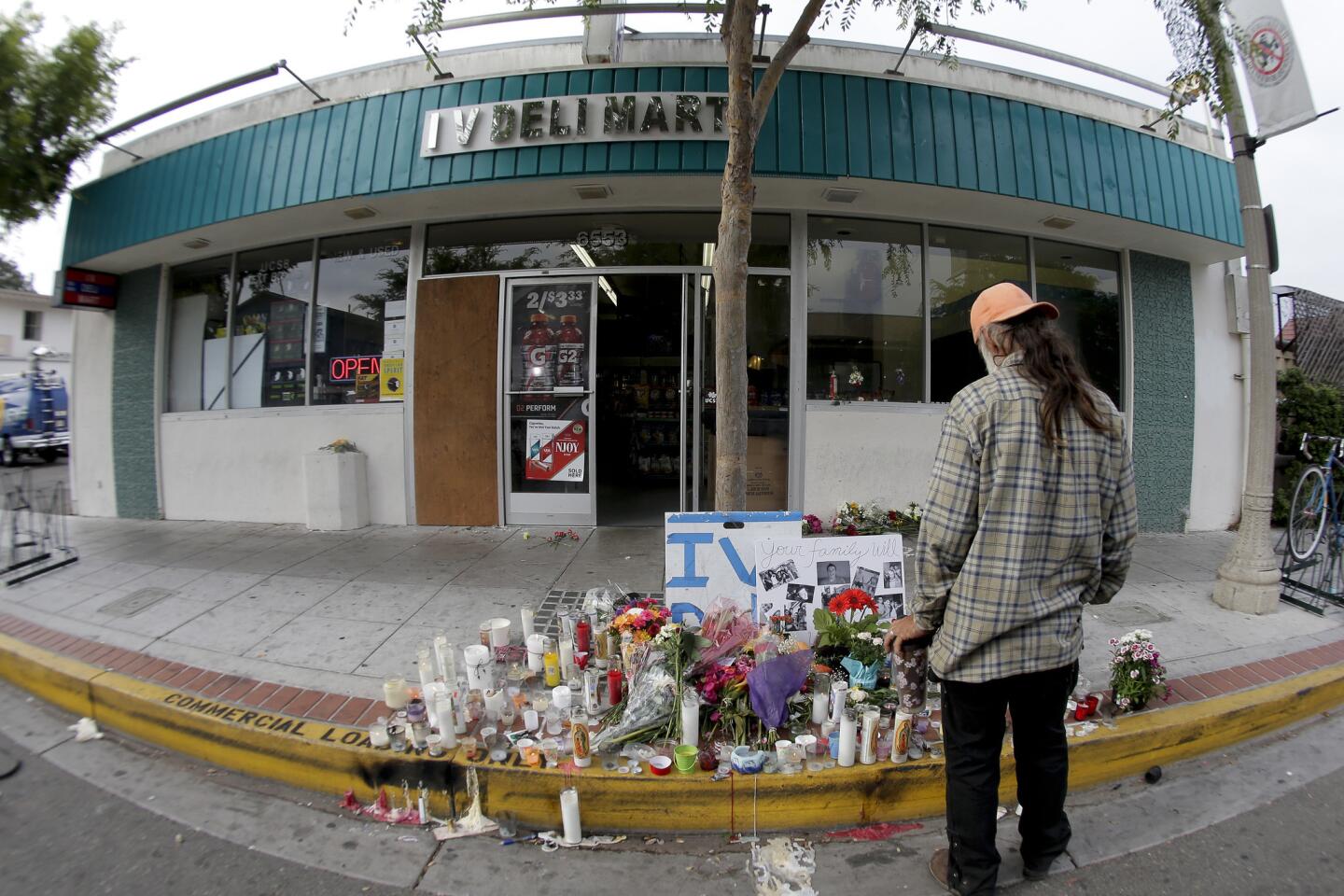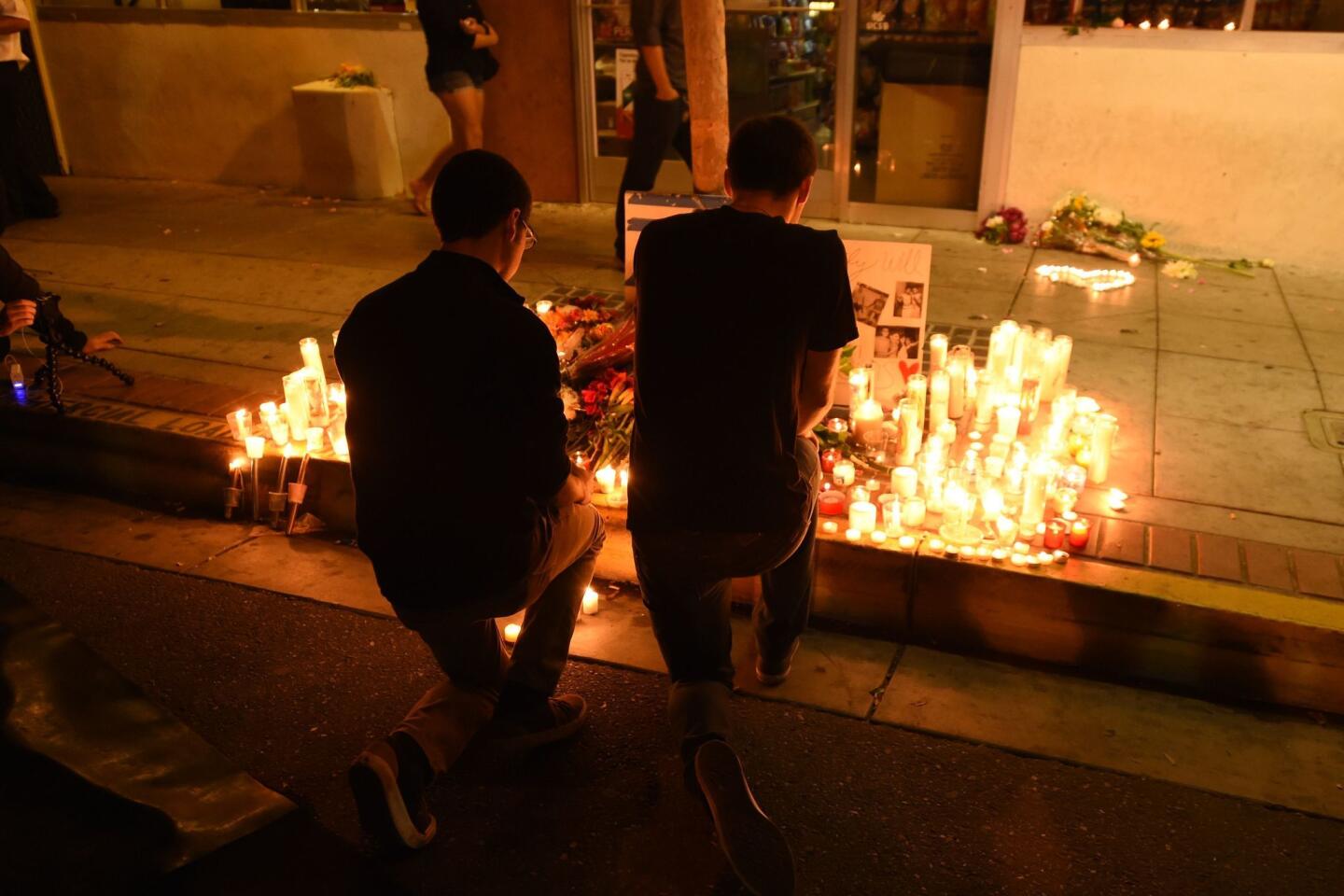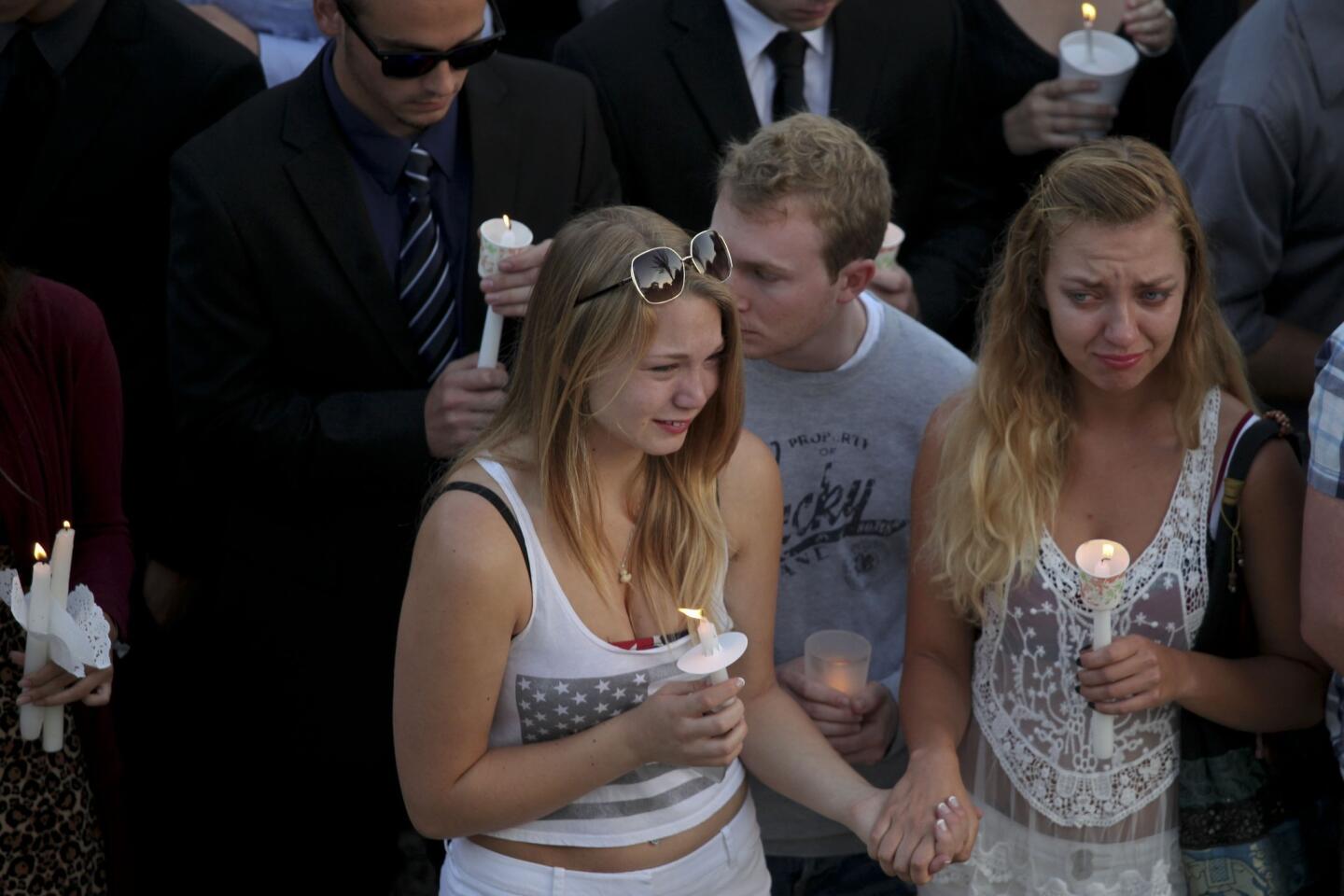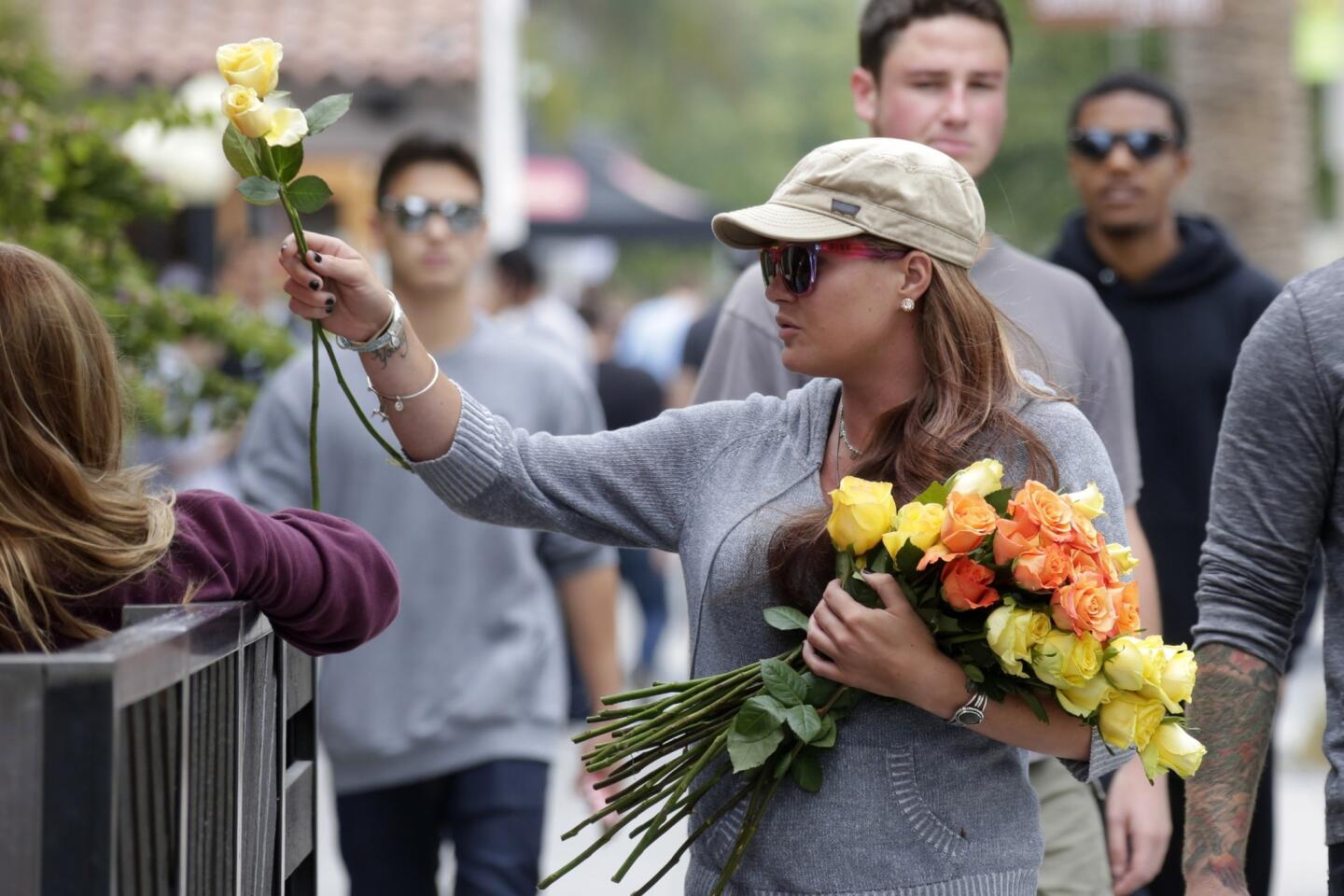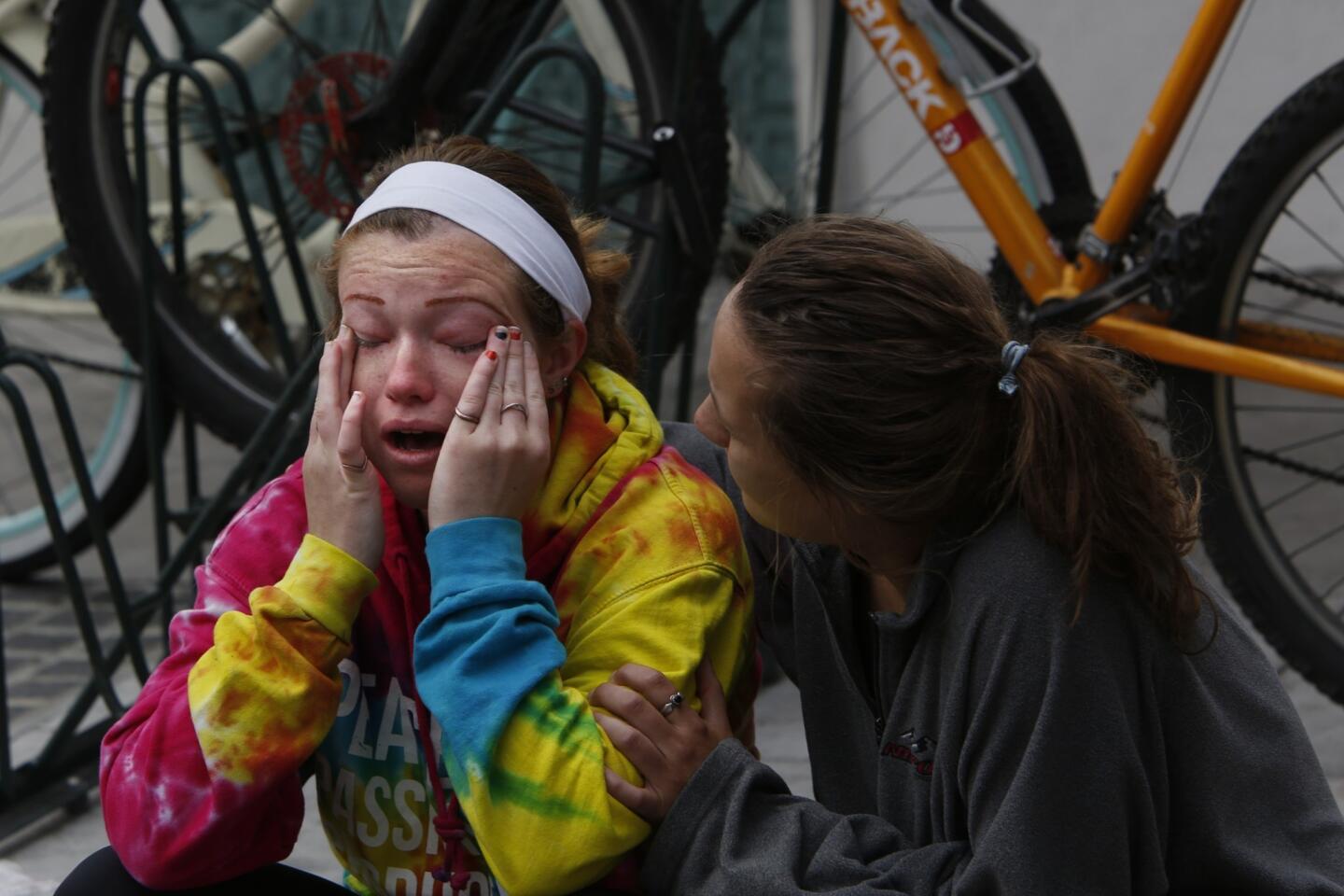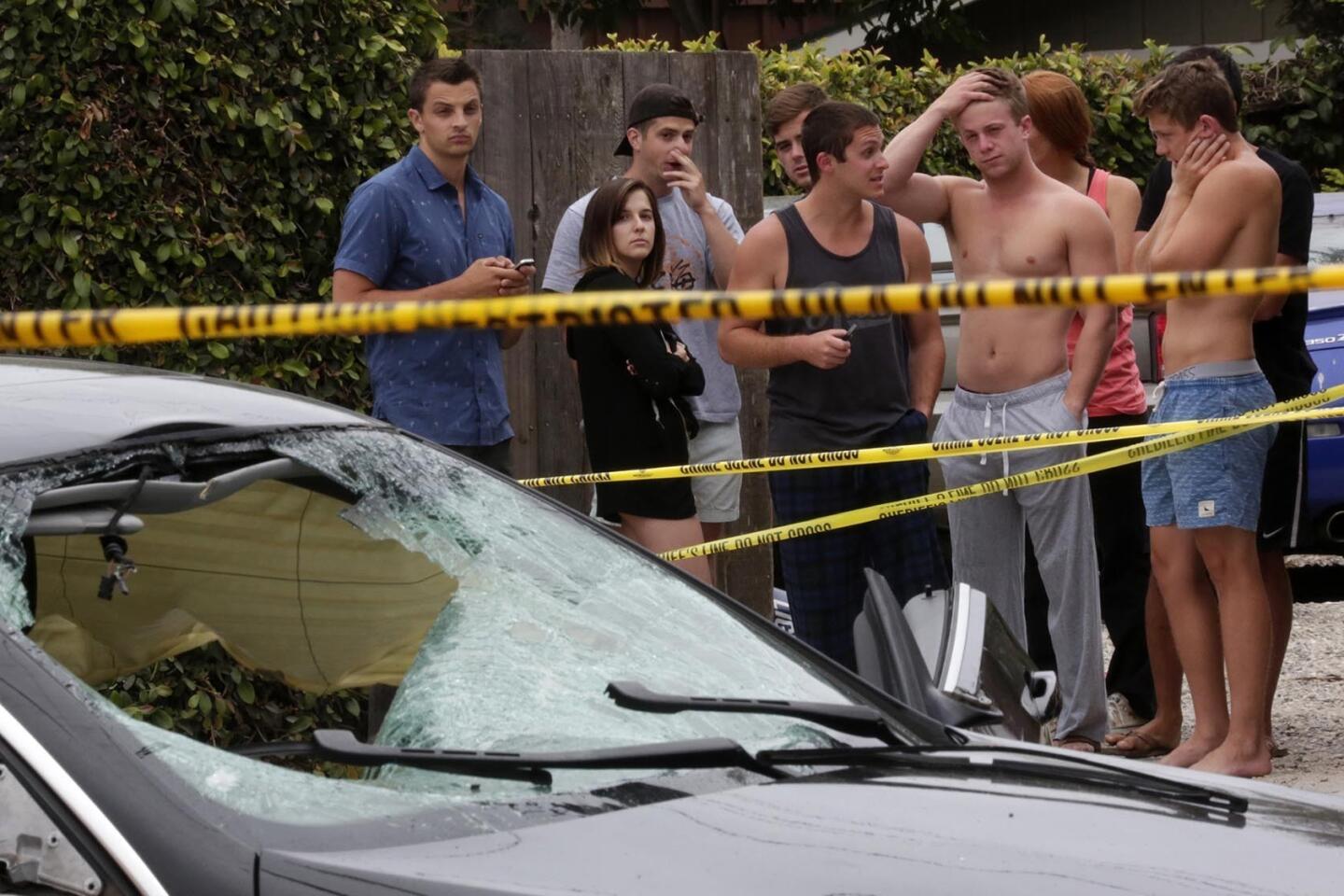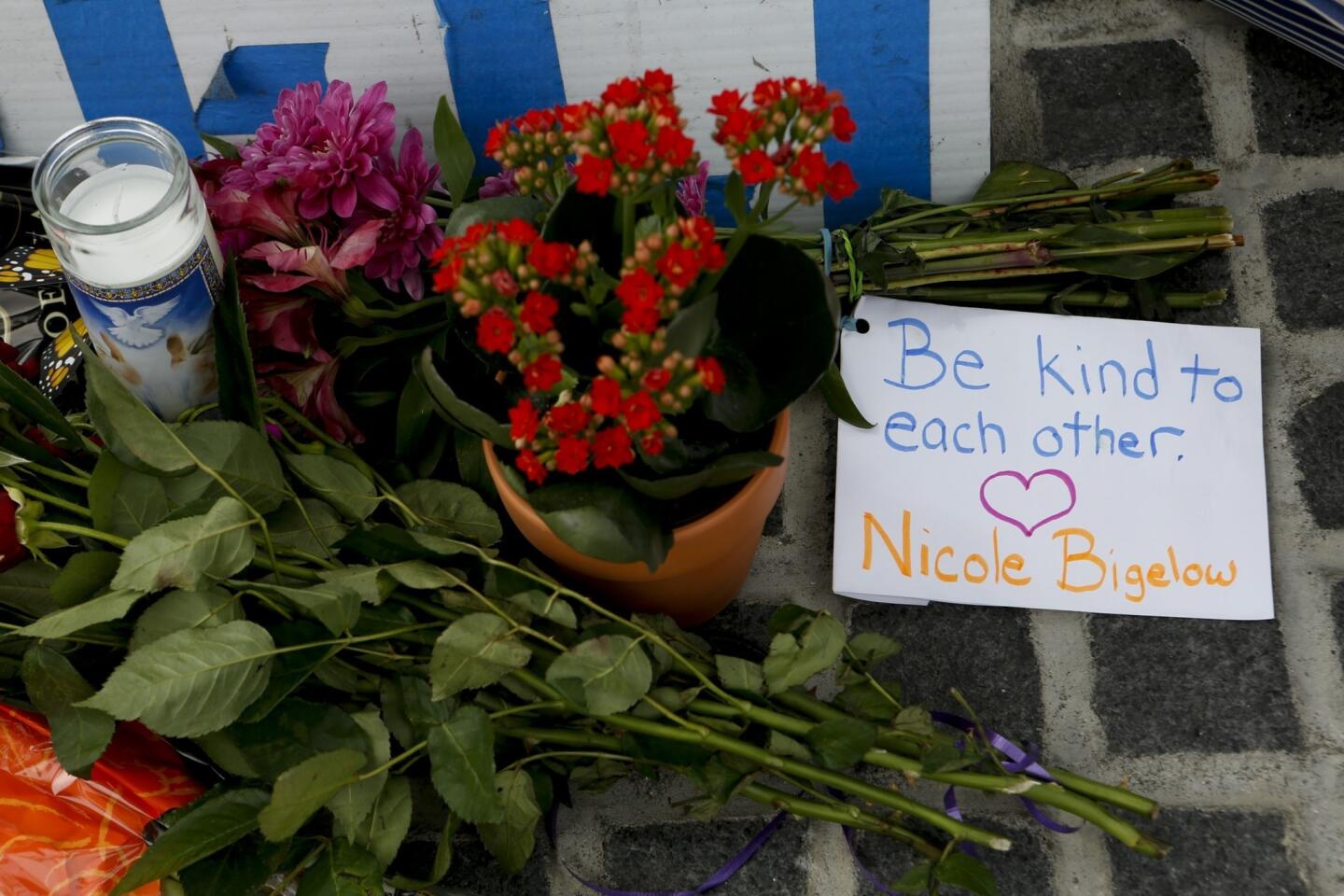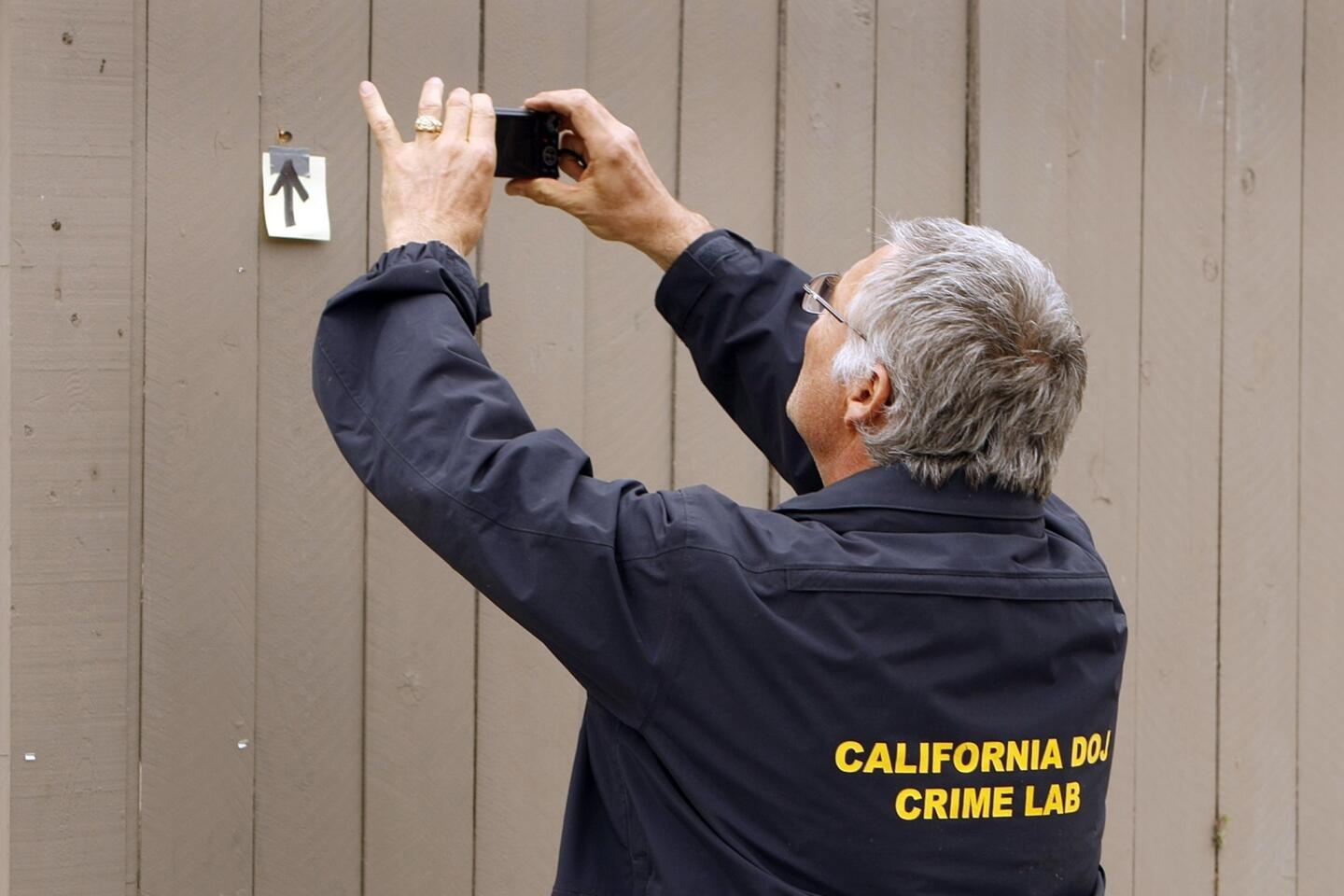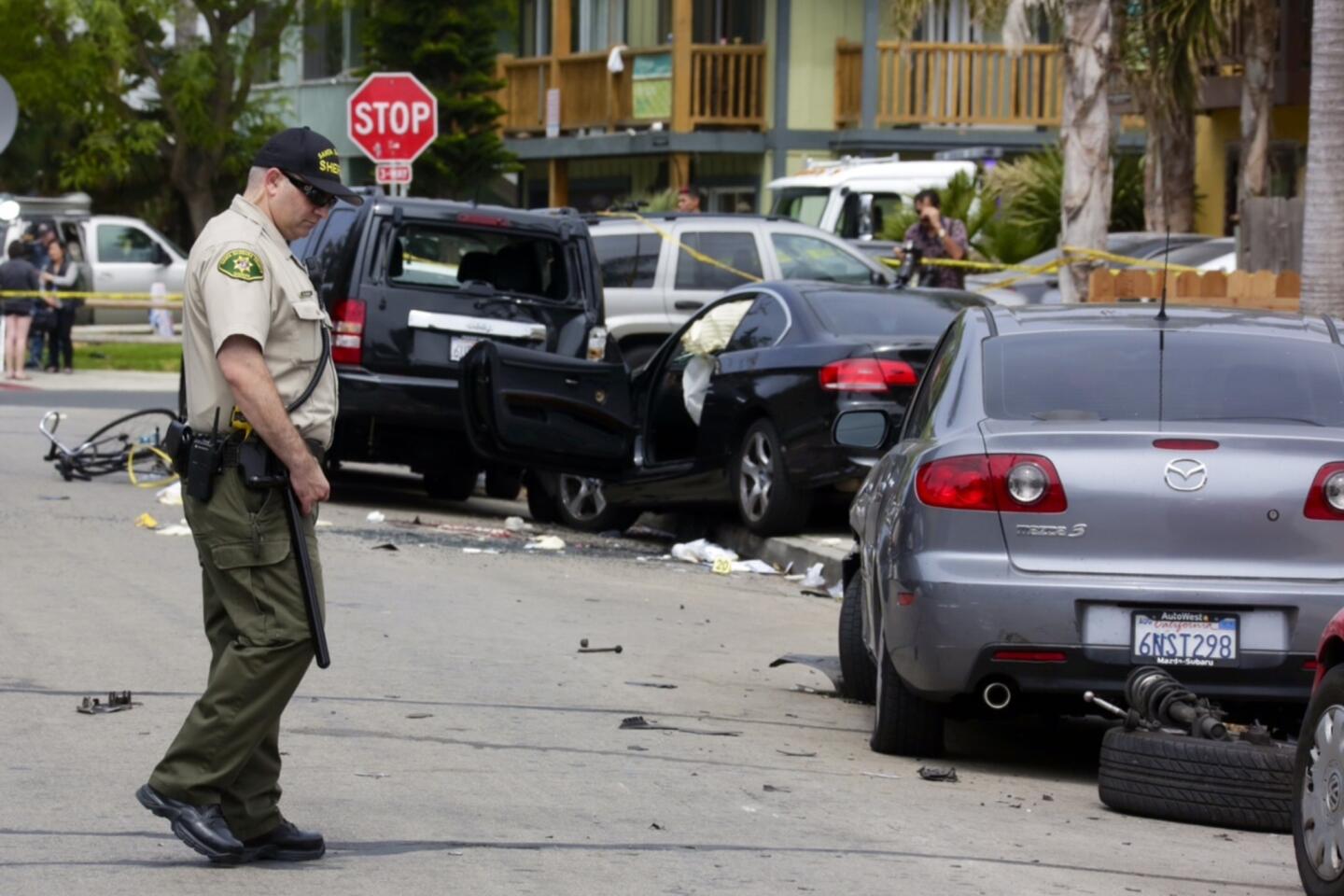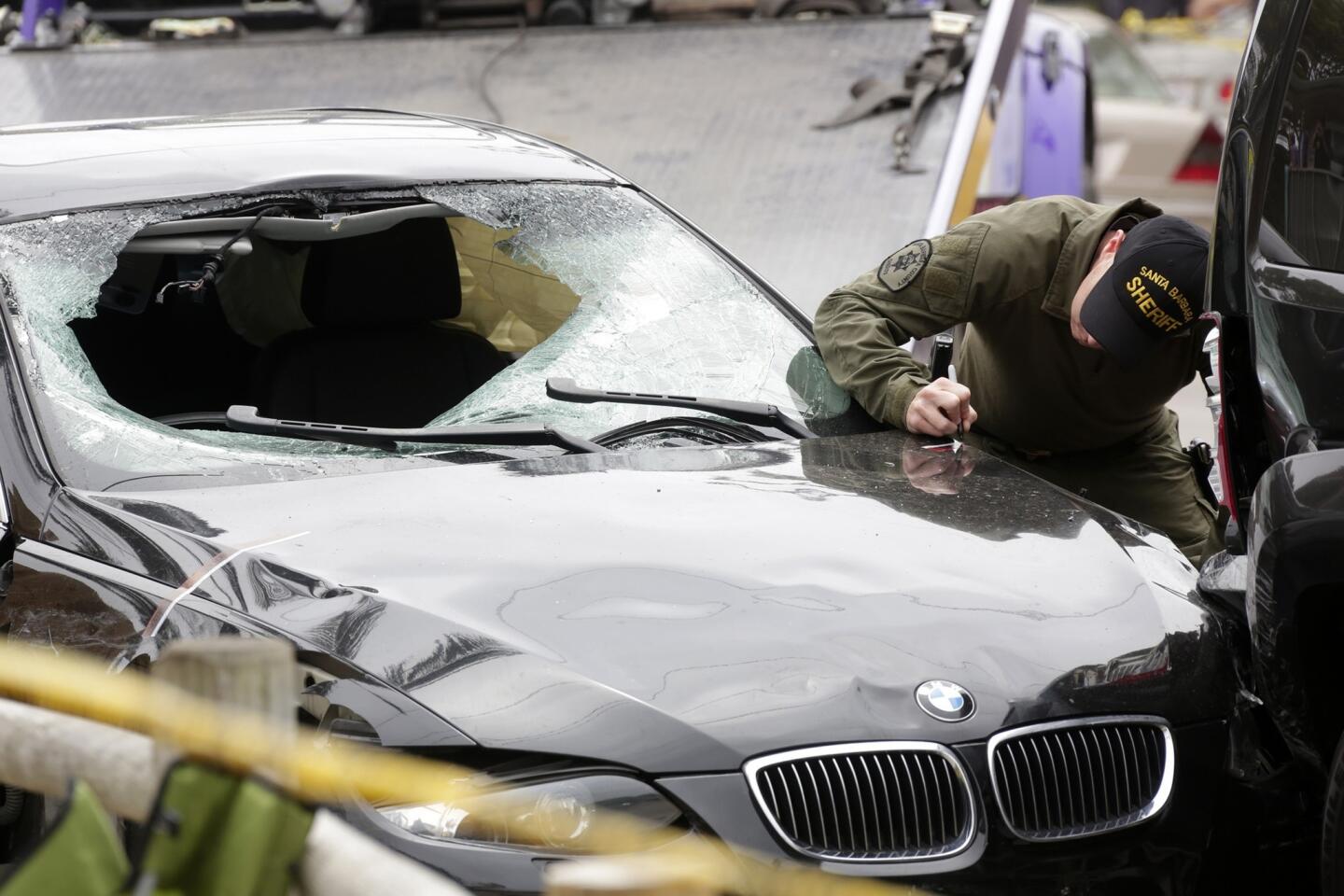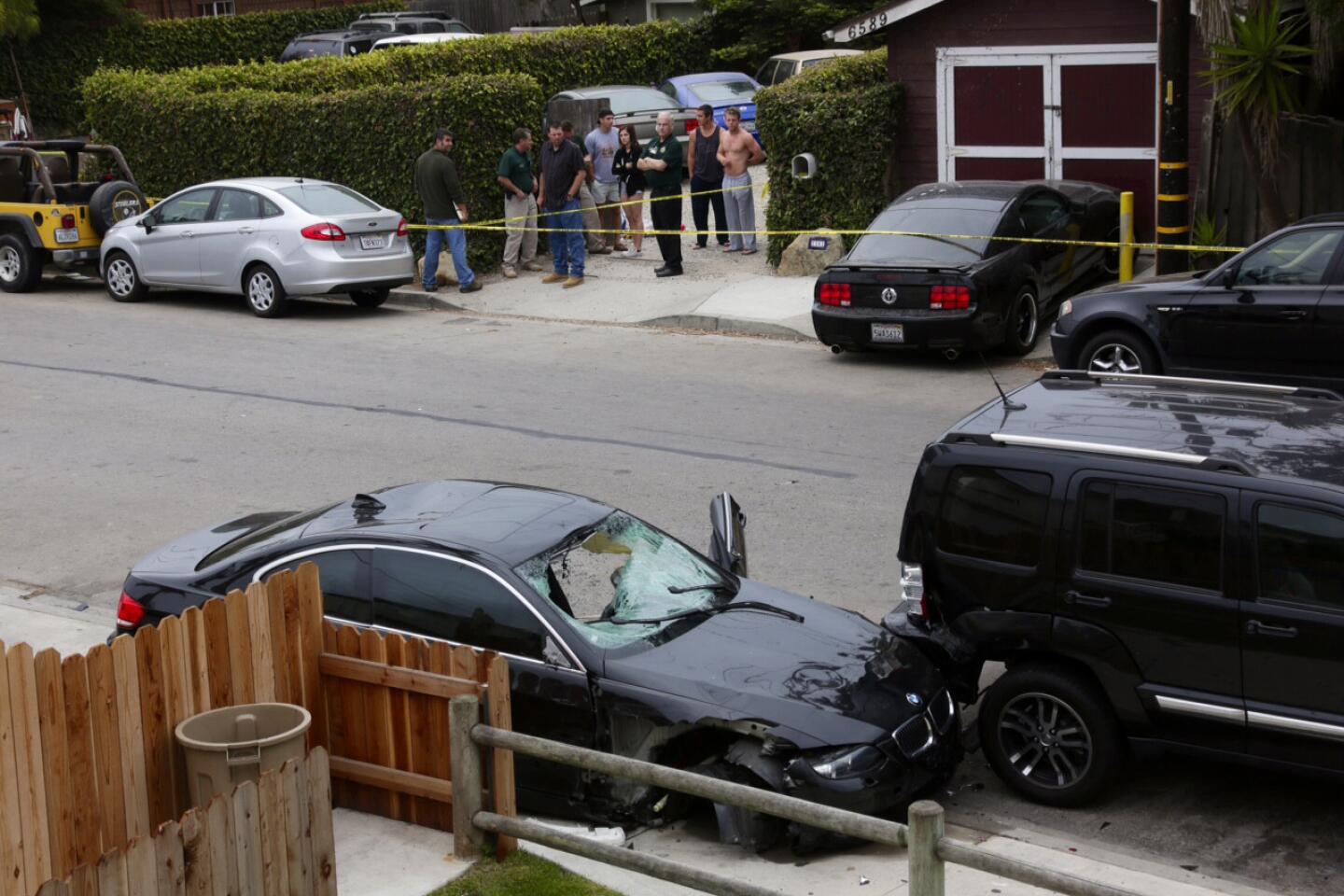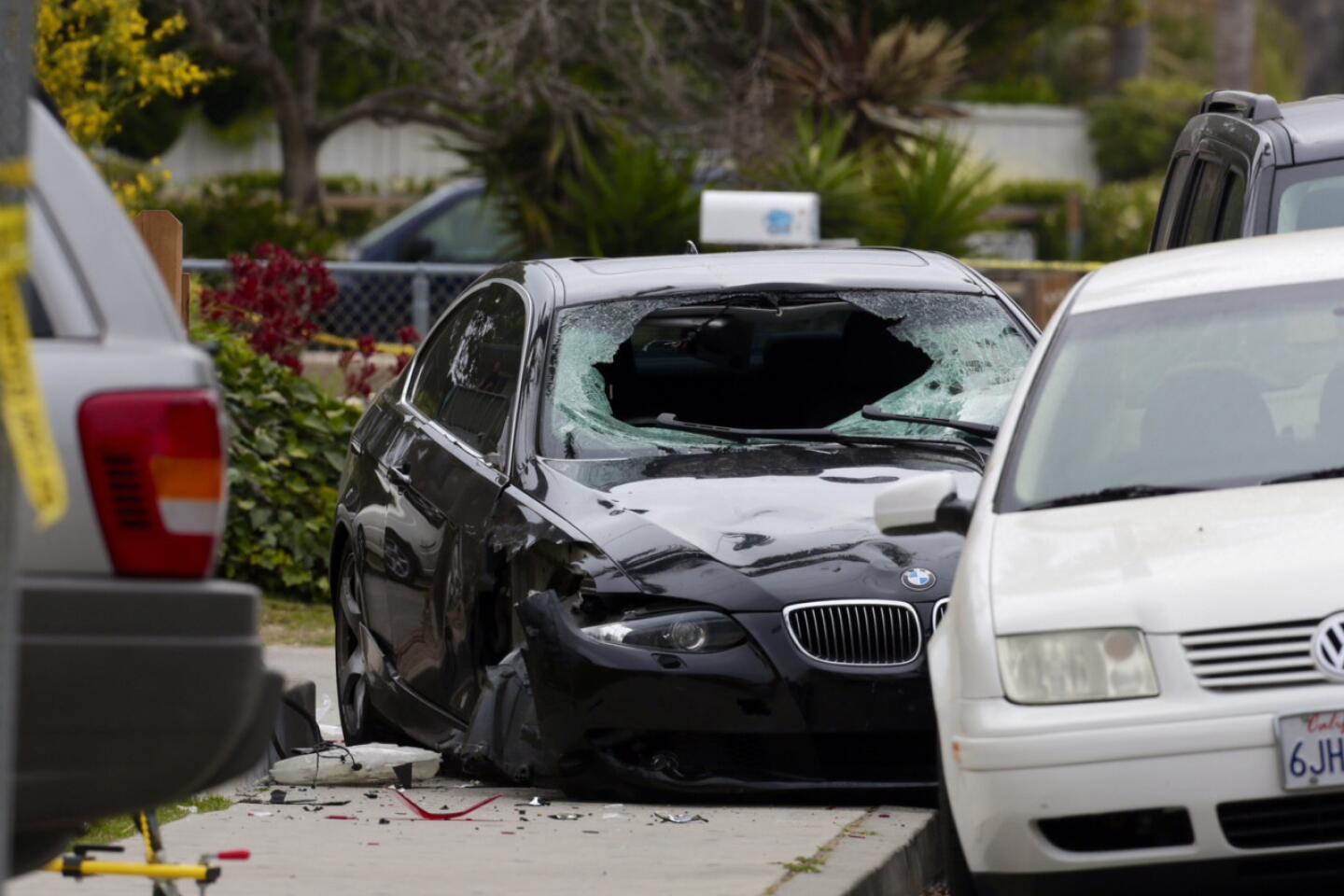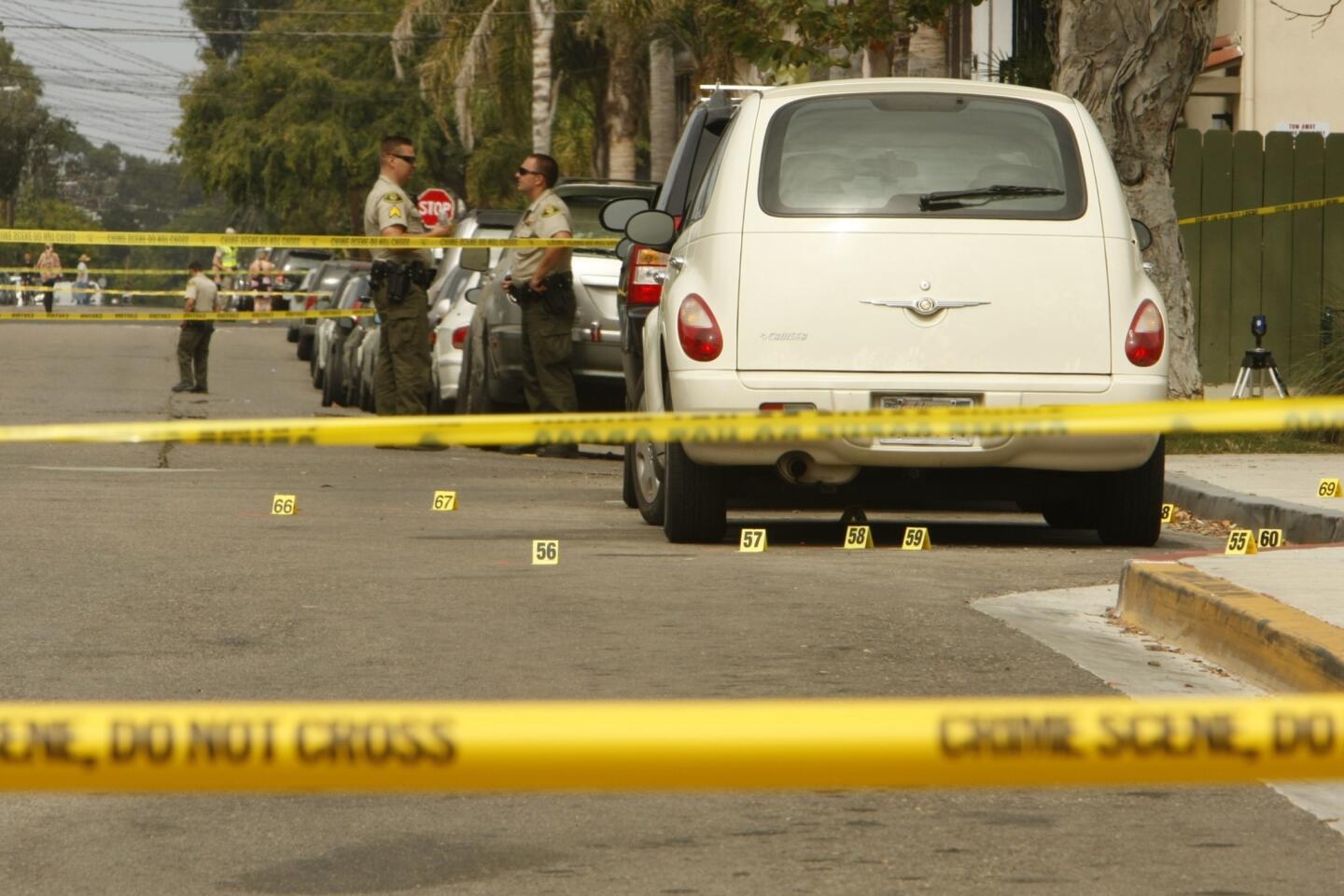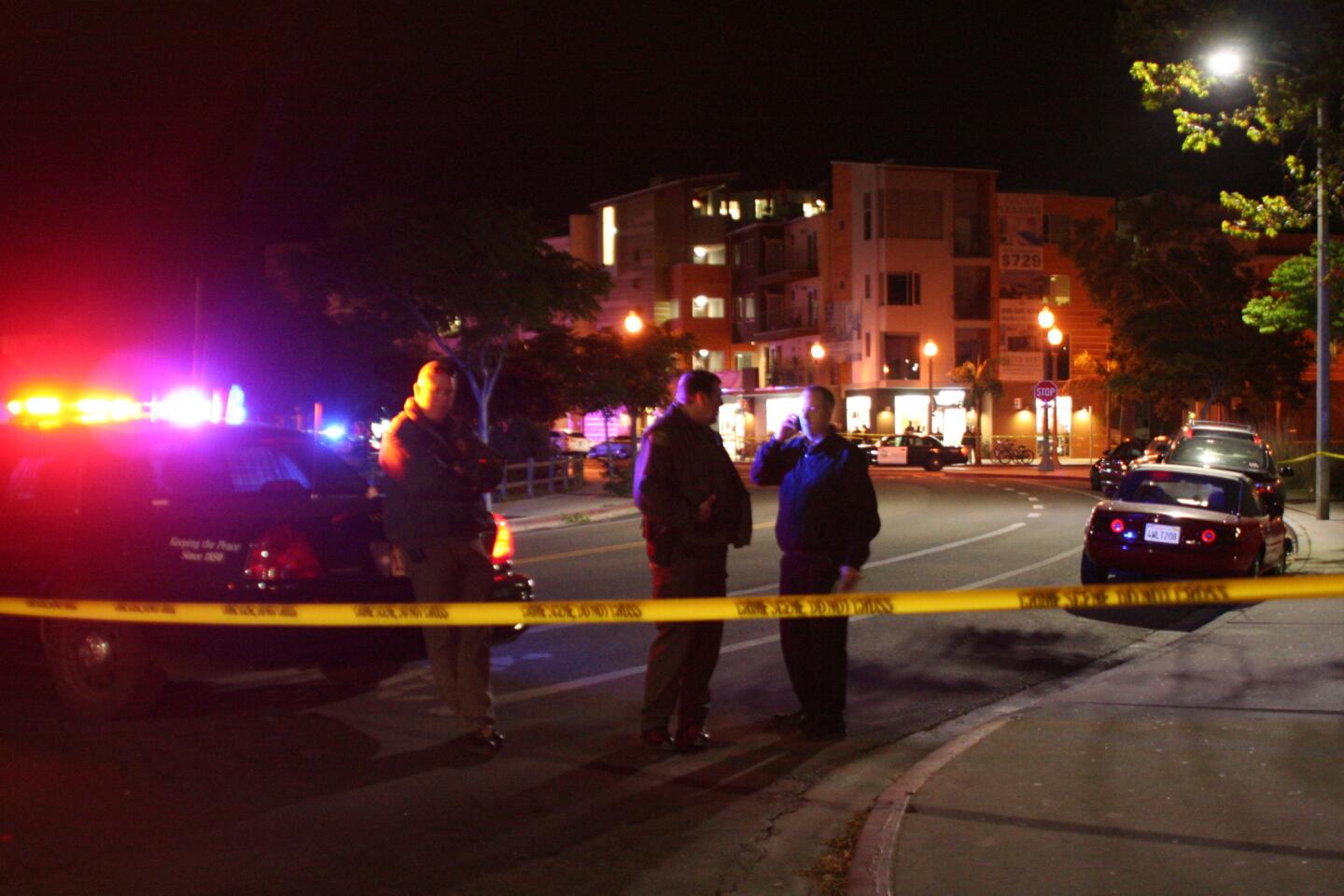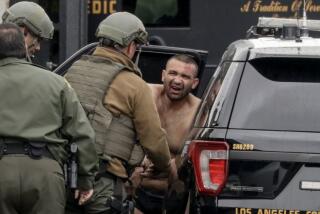Isla Vista shootings: Killing rampage recalls 2001 ‘angel of death’
- Share via
The killing rampage that left seven dead and 13 injured in Isla Vista this weekend isn’t the first tragedy to hit the coastal community near UC Santa Barbara.
The Isla Vista attacks echo a Feb. 23, 2001, incident in which four pedestrians were run down and killed by David Attias, then a freshman at UC Santa Barbara.
Attias drove his Saab at 60 mph into a large crowd in Isla Vista, killing Nicholas Shaw Bourdakis, Christopher Divis, both 20, Ruth Levy, 20, and 27-year-old Ellie Israel. Another victim, Albert Levy, was permanently injured.
After plowing through the crowd, Attias jumped on the car, held both arms in a boxing stance and declared, “I’m the angel of death.”
He was immediately arrested and charged with murder.
A jury, however, declared him insane in 2002, and he was committed to Patton State Hospital.
In 2012, a Santa Barbara judge allowed Attias to be released to a less restrictive outpatient program after finding that he was not “clearly not the same vacant, troubled and confused” man.
According to Santa Barbara authorities Friday night, Elliot Rodger fatally stabbed three people in his apartment and shot three others to death while driving through the streets of Isla Vista. All of the victims were UC Santa Barbara students.
Rodger sped through the community spraying gunfire at deputies and pedestrians, while plowing into others. After crashing his car, deputies discovered he died from an apparent self-inflicted gunshot wound to the head.
The similarities, however, between Attias and Rodger are hard to miss.
Both had fathers in the entertainment business.
Attias’ father, Daniel Attias, is a television director who worked on well-known shows such as “The Sopranos” and “True Blood.” Rodger’s father, Peter Rodger, worked as an assistant director on the 2012 film “The Hunger Games.”
Their parents tried to seek help for their sons.
David Attias’ father testified that he tried to persuade his son to take his medication, which he stopped doing when he began attending UC Santa Barbara. He reportedly suffered from mental illness and had been taking numerous medications to control his impulsive behavior.
Rodger’s parents had warned authorities about their son’s behavior in April, prompting deputies to go to his home to check on his welfare. He was also seeing a therapist, a family friend told The Times.
Rodger and the younger Attias had difficulties making friends and were frustrated about their sex lives.
“If only one pretty girl had shown some form of attraction to me, the Day of Retribution would never happen,” Rodger wrote in a rambling 137-page screed. “I’d never even consider it. The Day of Retribution is mainly my war against women for rejecting me and depriving me of sex and love.”
Both thought they were superior people and believed they were saving humanity with their deeds.
While Attias’ called himself an “angel of death,” Rodger’s described himself as a God in his screed.
“I will purify the world of everything that is wrong with it,” Rodger wrote. “On the Day of Retribution, I will truly be a powerful god, punishing everyone I deem to be impure and depraved.”
More to Read
Sign up for Essential California
The most important California stories and recommendations in your inbox every morning.
You may occasionally receive promotional content from the Los Angeles Times.
